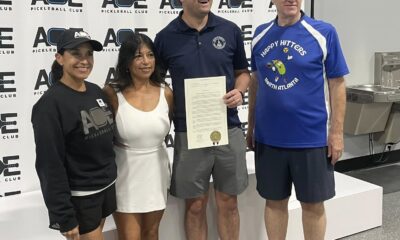Community
20 Faces of Peachtree Corners
Published
1 year agoon
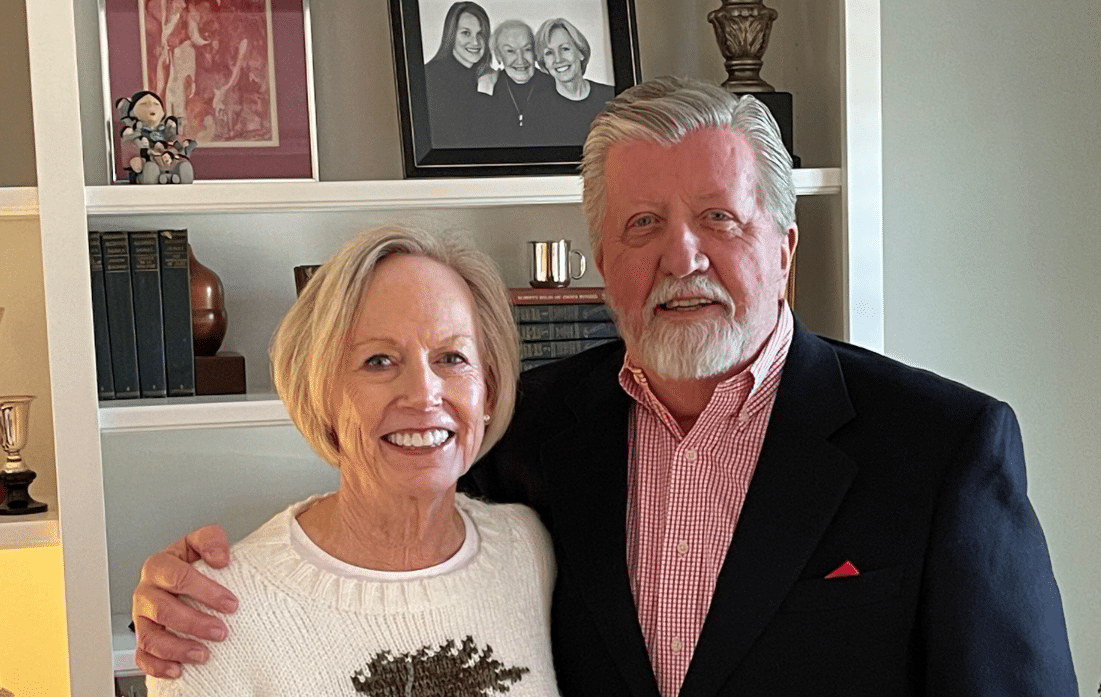
Peachtree Corners, recognized as a top place to live and work in Georgia, owes its accolades to its residents. Here are 20 individuals known to embody the heart and spirit of the community. They share what they love and how they contribute to the city’s desirability and uniqueness. From a caring veterinarian and proactive city council members to innovative entrepreneurs and gifted students, these are the faces that shape our city. Discover the Faces of Peachtree Corners and see how each person’s unique contribution creates an extraordinary community.
Alex Wright
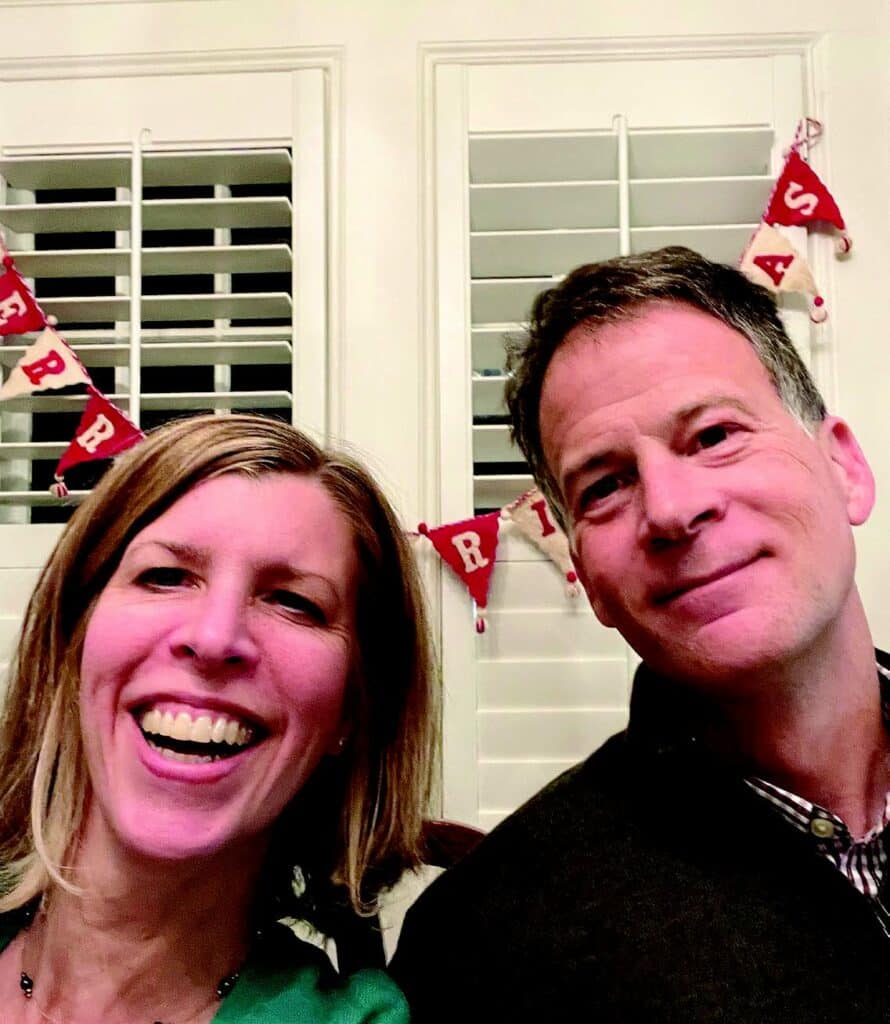
Councilman Alex Wright’s connection to Peachtree Corners began in 2003. A Georgia native, he returned to the state in 2001 after serving in the military. He was drawn to Peachtree Corners by job proximity but quickly felt at home.
“Peachtree Corners is like a small town, with a tight-knit community feel, but it’s free from the usual limitations of small-town life,” he said.
Wright’s motivation to enter local politics stemmed from a desire to protect and guide the city’s future.
“My goal when I was running for Council in 2012 was to prevent Peachtree Corners from becoming another city where people say, ‘Yeah, that area used to be nice.’ No, let’s stay here and fight to keep it nice,” Wright added.
In fact, let’s make it better! That really was what motivated me to get involved. Be part of the solution, not the problem,” he went on to say.
When considering recent projects in the city with impact, the Veterans Monument and the redesigned playground at the Town Center stand out. These projects aren’t just amenities; they’re symbols of what local government in touch with its citizens can achieve.
“The origin story of the idea behind the playground also shows the advantages of local government. A resident with a great idea helped jump-start a project that has been an absolutely huge success story.”
Drawing from his diverse background in the military and finance, Wright approaches his role on the Council with a focus on problem-solving.
“Though the military and the finance worlds are quite different in most ways, there are some similarities that have influenced how I approach being a member of the Council,” said Wright.
“Both heavily emphasize problem-solving skills. More specifically, they both emphasize having a solution or end result in mind. Working backward from there to determine a route to achieve the desired result,” he asserted.
Wright believes that most residents evaluate their government based on safety, economic well-being and minimal unnecessary intervention.
These principles guide his decision-making, especially in matters like land development, where he weighs the community’s safety and long-term economic benefits.
Wright’s journey reflects a life dedicated to service, problem-solving, and a steadfast commitment to the community he calls home.
Dr. April Coleman, Psy.D.

Dr. April Coleman, Psy.D. is the contract psychologist for the International Charter Academy of Georgia. Her lifelong commitment to community service stems from her childhood, influenced by her parents’ involvement in charitable acts.
“I watched my parents in their roles with the United Way, our church, and their social and civic organizations participating in holiday toy drives,” she said.
I watched them feed the homeless and lead several other initiatives. It just made sense to me that as I grew older, I would continue this same drive and passion for community involvement,” she added.
This dedication continued through her college years, where she was actively involved in organizations like Key Club International, Circle K International, the National Council for Negro Women (NCNW), and the National Association for the Advancement of Colored People (NAACP).
Dr. Coleman’s passion for community service has only grown since college. She is a board member of the Spectrum Autism Support Center and actively contributes to the Junior League of Gwinnett and North Fulton Counties.
Dr. Coleman serves in various roles at Trinity AME Church and in the Sister2Sister Mentoring program. She also continues her advocacy work at the Georgia State Capitol.
“My drive for giving back and helping others comes from a deep sense of compassion and empathy. When I see someone in need or a cause that resonates with me, I feel a strong desire to make a positive impact and improve their well-being,” she reflected.
Dr. Coleman contributed to the establishment of a permanent SPECTRUM location in Gwinnett County. The organization supports individuals and families impacted by autism.
She advocates for mental health through the Junior League by focusing on challenges faced by women and girls. Her efforts include mentoring programs and initiatives to provide essential products to those in need.
Dr. Coleman also aims to alleviate the mental health effects of poverty and resource scarcity.
Dr. Coleman confronts challenges like the stigma of seeking mental health support. She sees the rise in anxiety and depression among children post-pandemic. To help, Dr. Coleman advocates improving the number of school resources for mental health needs.
She addresses the need through educational seminars, panel discussions, community events and professional development training for teachers.
Her efforts extend to sharing resources, contributing to publications and authoring a children’s book on anxiety. Dr. Coleman’s work exemplifies a commitment to enhancing the well-being of the Peachtree Corners community and beyond.
Bertrand Lapoire
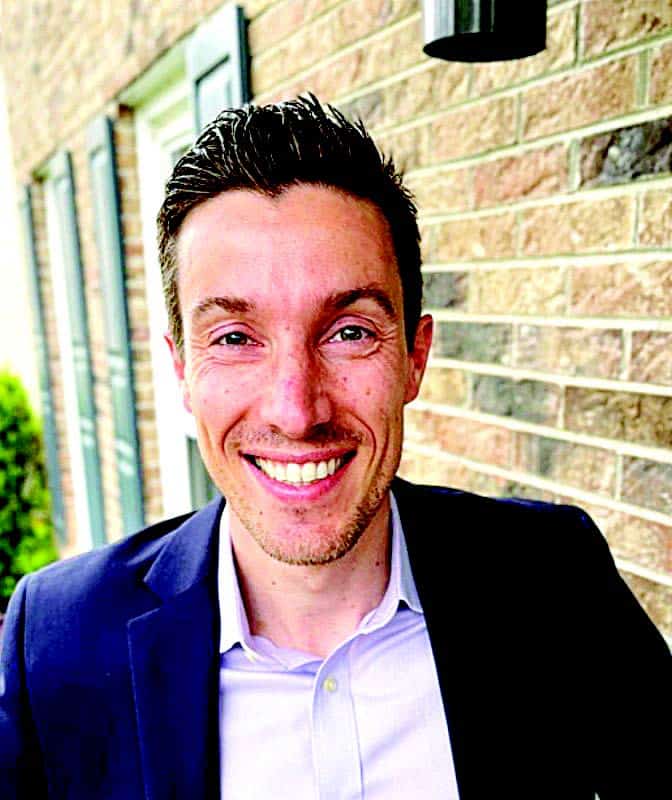
Bertrand Lapoire, originally from France, found a warm welcome in the community of Peachtree Corners. Attracted to the beautiful landscapes and great schools in 2013, his family knew they had found their home.
A true Frenchman, Lapoire owns Neodistributing, LLC in Norcross. The company is an exclusive distributor of Enomatic Wine Serving Systems for 18 states in the eastern and southeastern U.S. The company serves customers like the Ritz Carlton, Kroger, and REGAL Cinemas.
Lapoire has contributed to the growth of the French American Chamber of Commerce (FACC) in Peachtree Corners since 2012. Currently Vice Chairman, he moved the FACC office from the French Consulate to Curiosity Lab in Peachtree Corners.
This decision was driven by the support and opportunities offered by the city and Curiosity Lab.
“Thanks to key people I met at the city and at Curiosity Lab who showed immense support and interest in having the FACC join the ecosystem, coupled with the ability to grow our operation and host international interns in the facility, our decision was easy to make,” he said.
“We immediately benefited from the constant activity at Curiosity Lab and the support of the city as a partner and member of the Chamber. This even led to a delegation trip to visit different incubators and mobility research hubs in France early this year,” he added.
The move has proven beneficial, enhancing the Chamber’s operations and fostering international connections.
During Lapoire’s tenure as the Chairman of the Peachtree Corners Downtown Development Authority, he made tremendous strides to revitalize Technology Park. He focused on improving amenities and daily life for employees and residents, bringing new energy and focus to the board.
“I spent a few months as the Chair of the DDA before joining the Economic Development team for the city. I’m still proud of being able to insufflate a new energy on the board for a few months during which we have started to focus on the amenities and activations that would help improve Technology Park and the everyday life of the employees and citizens,” he explained.
Lapoire is an enthusiastic traveler, looking forward to visiting family in France and exploring Italy and Germany next summer. He also has a long-term goal of traveling to Japan.
Lapoire’s journey from France to Peachtree Corners exemplifies a successful integration into American life while maintaining strong ties to his roots.
His professional life and community involvement highlight his commitment to fostering relationships and development. He is a truly valuable member of the Peachtree Corners community.
Bill Diehl
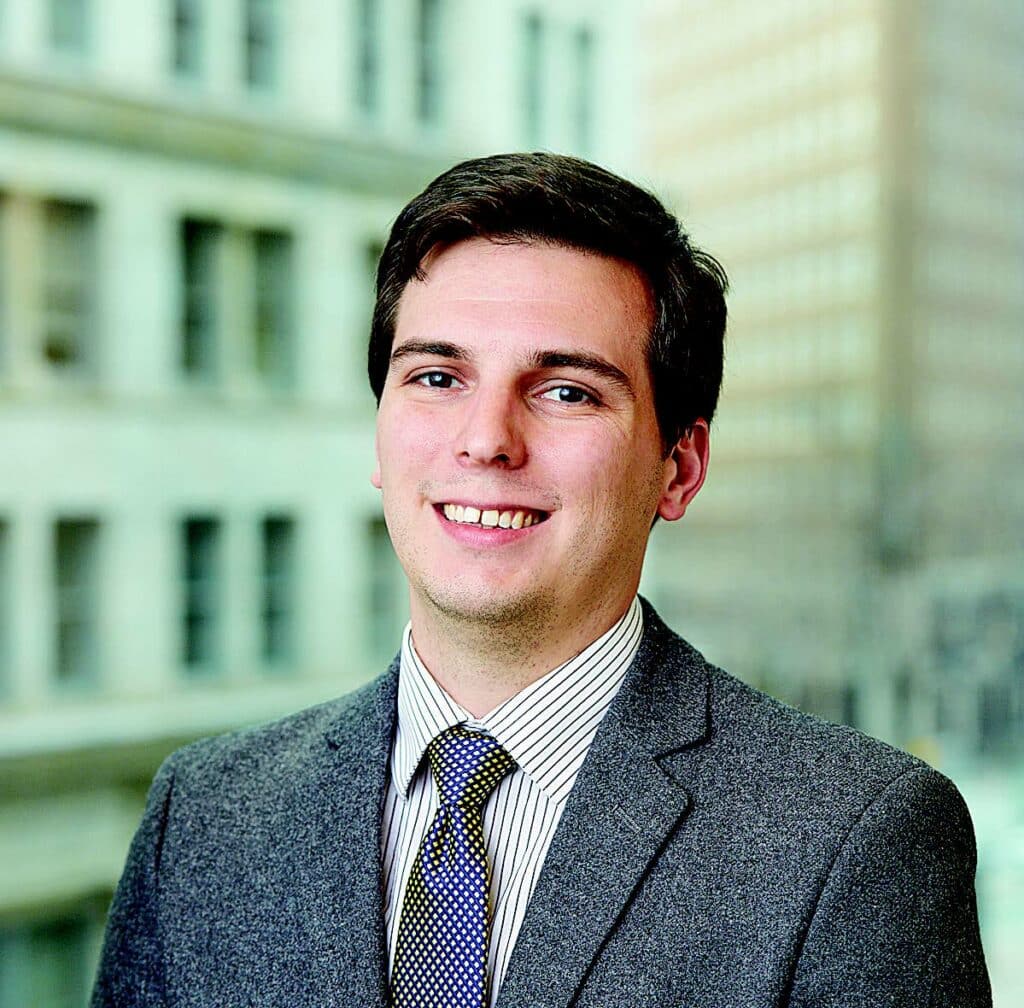
William “Bill” Diehl is chairman of the Southwest Gwinnett Chamber of Commerce and president of the Peachtree Corners Rotary Club. He’s been instrumental in leading initiatives to strengthen community ties and support local families in need.
Under Diehl’s leadership, the Chamber supported meal preparation and delivery for families facing economic hardships. They accomplished this by partnering with local nonprofits such as the Alliance and Neighborhood Cooperative Ministries.
Diehl initiated Career Exploration Night for the Rotary Club. The evening grants high school students the opportunity to learn about various professions and scholarships.
“What sets this event apart is that we try to find professionals and careers that many students may not have considered or even known existed. It’s neat to see the wheels turning as kids hear about possibilities they never knew were there,” he shared.
As a board member of Revved Up Kids, Diehl helps promote the organization’s mission. The program helps prevent child abuse through educational programs for children and parents.
Diehl and his wife, Kassie, reside in Norcross with their two children. Diehl, a land use and commercial litigation attorney, is heavily involved in Peachtree Corners and values the area’s diverse range of experiences.
For example, historic landmarks, modern technological advancements and the variety of dining options from global cultures.
“This area has Gwinnett’s second oldest city and its newest. It has a historic train depot and a worldwide leader in automated transportation systems only two miles apart from each other,” said Diehl.
A well-known figure in Peachtree Corners, Diel is a testament to fostering community where you live. Although he recently accepted a new role outside of the city, the roots Diehl and his family have planted here are sure to remain strong.
Bob Ballagh
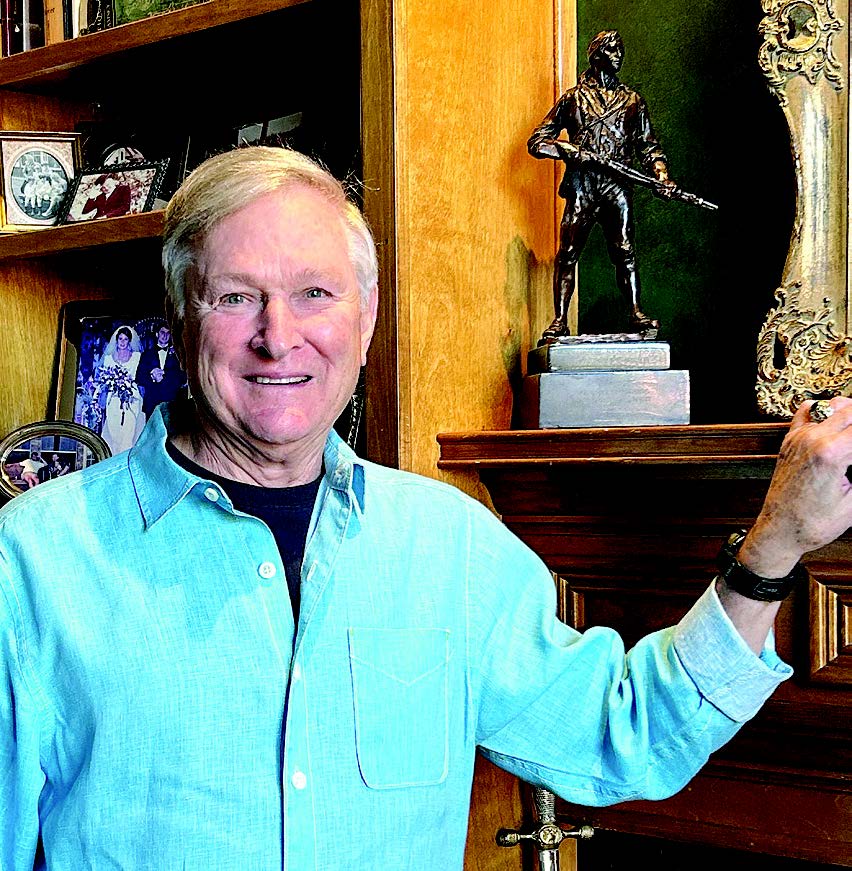
In 1991, Bob Ballagh, posted to Fort McPherson by the Army, and his wife Ella began their search for a new home in the Atlanta area.
After exploring different neighborhoods, the charm and potential of Peachtree Corners felt like home.
Friends from Ballagh’s army days pointed him toward a new subdivision named Riverfield and thus began the journey of owning a home after 27 years of Army accommodation.
Bob shared, “We were drawn to Peachtree Corners because of the excellent schools and the overall community ambiance.”
With roots starting to deepen, Ballagh became an active community member.
He said, “Being among the initial residents of Riverfield, I naturally involved myself in the HOA and the emerging Fields Club, serving on the inaugural boards of both.”
Speaking on his military experiences, Ballagh shared, “Military communities thrive on volunteerism. From coordinating large youth sports programs to assisting on-base services, my time in the military emphasized the essence of community service. It’s this spirit that translates seamlessly to civilian life.”
After his Army retirement in 1993, life took Ballagh on a brief detour to Croatia for four years. On returning in 1998, his commitment to Peachtree Corners resumed, securing a role at CheckFree and re-engaging with the community organizations.
Discussing his efforts for the Peachtree Corners Veteran’s Monument Association, Ballagh recalled how the community showed up to support the occasion.
“We had significant contributions by Charlie Roberts, Doug Heckman, Gina Bryant, Lisa and Bob Cheeley, the city of Peachtree Corners, Barbara & Brad Howard (Suzanna’s Kitchen), and Fisher Sculpture, and Kent Feuerbach who built the monument,” he explained.
“We had nearly 1,000 donors who gave donations ranging from $100 for a brick to $75,000,” he went on the say.
On the horizon, Ballagh is optimistic about the association’s evolution from focusing solely on the monument to becoming a broader service organization for Veterans.
Offering advice to fellow Peachtree Corners residents, Ballagh stated, “There is an abundance of opportunities for you to continue to make the city a great place to live–volunteer for scouting programs, at the YMCA, for food lockers, or at schools. Peachtree Corners is only as good as the people who live here. We have a great legacy–let’s keep it that way.”
Bobby Cobb
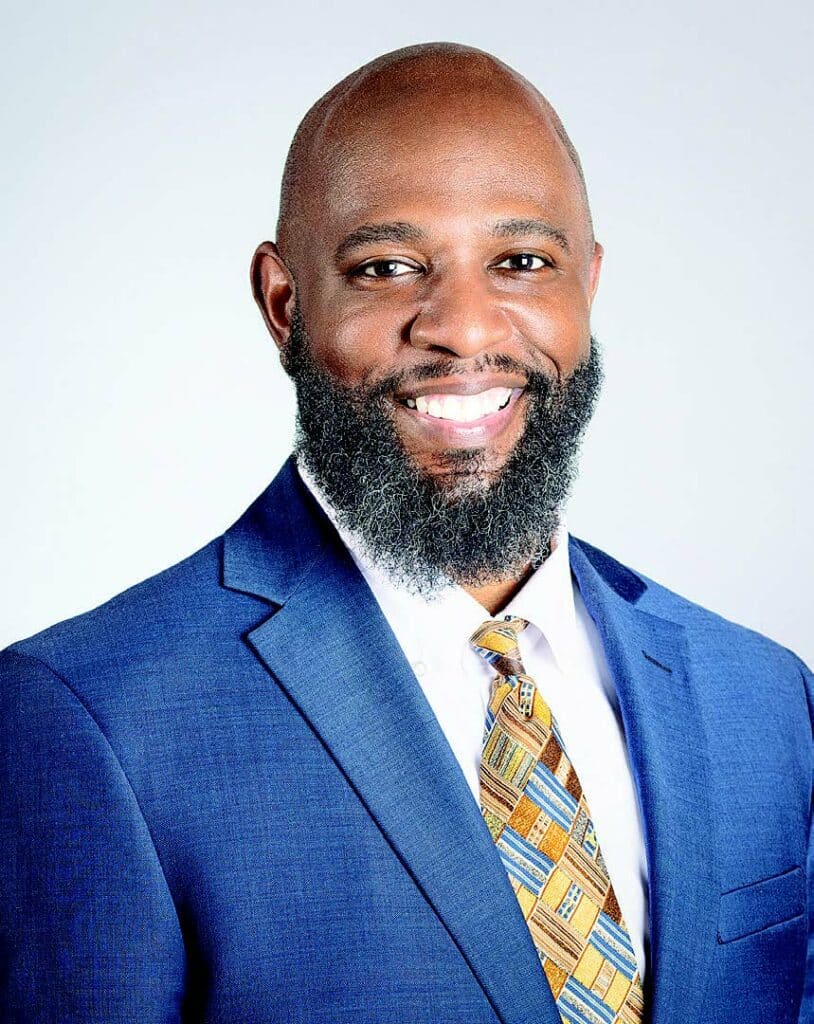
Upon relocating from Phenix City, Alabama, Bobby Cobb found purpose in the community spirit of Peachtree Corners.
This was a pivotal time in Cobb’s life, as he was relocating during the pandemic. He soon felt a true sense of belonging.
That support, along with the city’s inclusive leadership, spurred him to establish Cobb Global Outreach (CGO). An organization that focuses on decreasing the wage gap through scholarships and financial literacy for youth.
“Our mission is to decrease the wage gap by providing scholarships and education about financial literacy to youth. We believe that equipping students with knowledge about finance can help narrow the wealth gap and empower future generations,” said Cobb.
CGO’s initiatives, like the “Start to Success Backpack Campaign” at Norcross High School, have shown measurable success. In fact, he provides increasing support to families each year.
Partnering with local organizations, CGO also conducts “The Future Is Yours,” a program offering holistic development tips to students.
In addition to CGO, Cobb supports Project Kids and actively participates in the Southwest Gwinnett Chamber of Commerce and the Peachtree Corners Business Association, contributing to various local causes.
“By working together, we can create a supportive, nurturing environment that empowers every student in Peachtree Corners to reach their full potential,” Cobb shared.
“Yes, I’m a dreamer. But I’m also a doer. And I’m committed to doing everything I can to make this dream a reality for the students of Peachtree Corners,” he added.
His vision for the students of Peachtree Corners is comprehensive and includes academic success, secure living and well-being. Cobb emphasizes collaboration across sectors as the key to realizing this ambitious goal.
Chris Cleveland
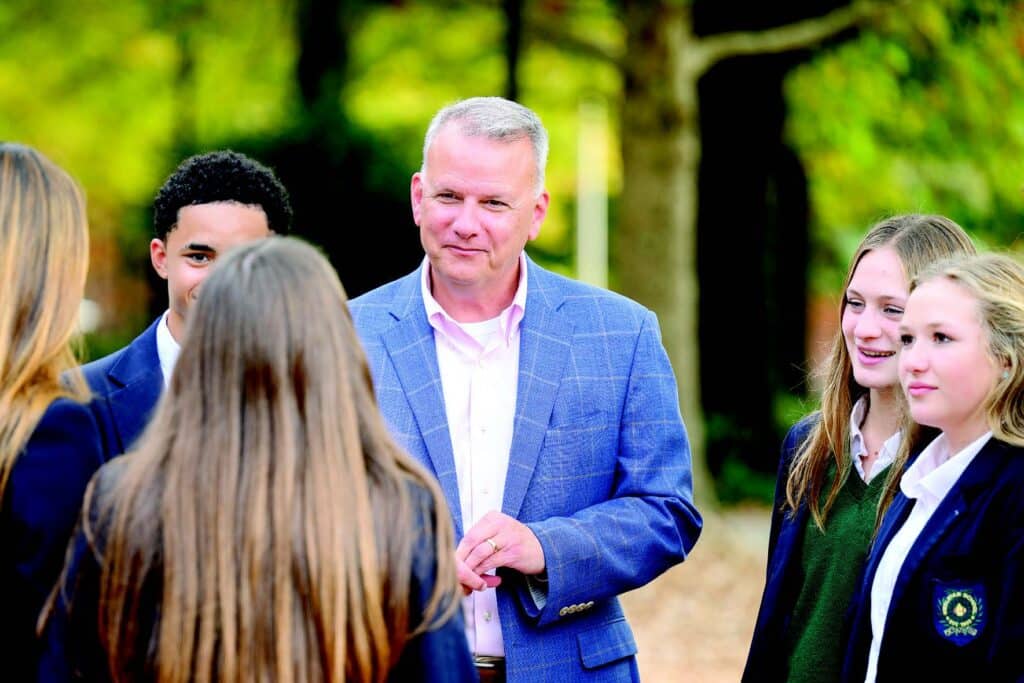
Chris Cleveland, a native Atlantan and long-time Peachtree Corners resident, witnessed the transformation of Peachtree Corners first-hand.
He observed how the growing desire to reduce commuting times has expanded the community. And now, the sleepy town he once knew has become a vibrant hub.
Peachtree Corners has become a place where people can work, live and enjoy leisure without extensive travel.
As the headmaster of Wesleyan School since 2002, Cleveland has contributed in his own ways to the city’s transformation. He views the school not only as an educational institution but as an integral part of the city’s development.
“What I appreciate about the people of Peachtree Corners is the expressed desire for this to be a true community. Authentic community can’t exist at arm’s length. We must take the time to get to know one another and to work, volunteer and serve with each other,” he explained.
Despite the demands of his role, Cleveland finds ways to engage with the local community through family activities, dining and shopping. He considers Peachtree Corners a true home where his social networks come alive.
Cleveland’s educational philosophy is shaped by his experiences and the leaders he’s encountered throughout his career.
He emphasizes the importance of personal relationships in education and warns against the impersonality that can accompany technology.
“Our world is becoming increasingly impersonal. While advancements in technology have served us well in terms of efficiency, if we aren’t careful, we lose sight of the need to invest in each other,” he asserted.
Cleveland identifies innovation as the primary challenge and opportunity for education in Peachtree Corners. He underscores the need for schools to adapt quickly to societal changes while focusing on children’s needs.
“Schools need to remain focused on the needs of children. This is becoming increasingly difficult as schools continue to feel the pressure to do more and more for children, including things for which schools were not designed,” Cleveland explained.
“Finally, in the midst of new initiatives and innovative curricula, we can never lose sight that education is about the development of children, which demands the personal investment of loving and caring adults,” he continued.
With increasing pressures on schools to take on roles beyond their traditional scope, Cleveland pushes back. He insists that schools must remember that education is fundamentally about the development of children.
To be successful, education requires personal investment from dedicated adults. Under Cleveland’s leadership, Wesleyan School aims to embody these principles, playing a vital role in the community’s youth support and development.
Jaime Cho
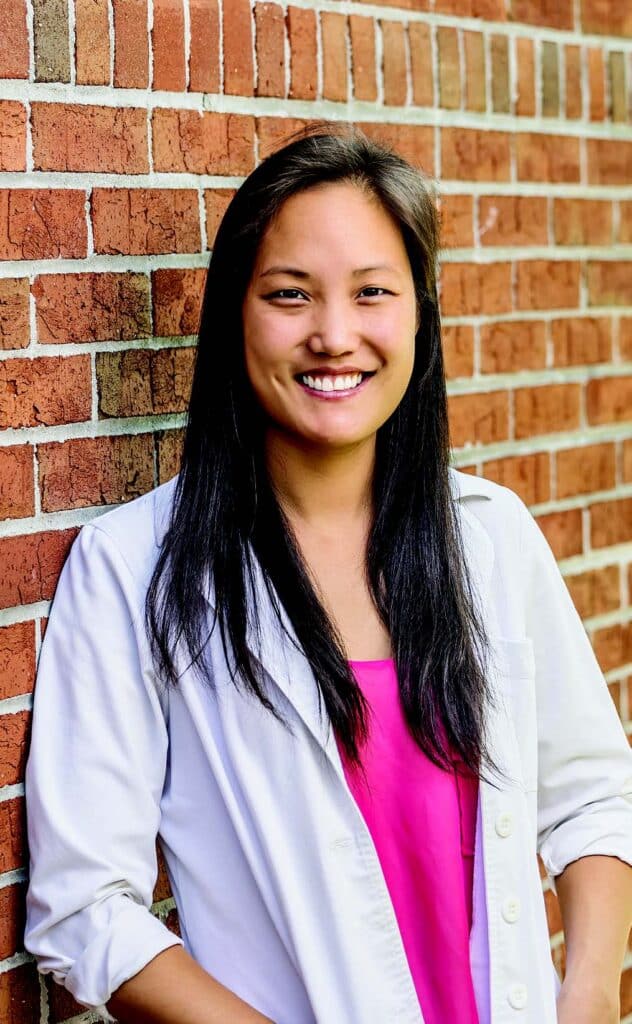
Jaime Cho has made it her mission to bring a sense of family and personalization to local veterinary care.
Cho had a dream that sparked in the halls of the University of Georgia (UGA), where the challenge of veterinary medicine called to her.
“I’ve always had a love for animals. I daydreamed about nursing animals back to health and releasing them back into the wild,” she recalls.
“During my freshman year of college at UGA, I listened to a professor talking to pre-vet students about the UGA veterinary medicine program. The more he talked about it, the more it piqued my interest. I distinctly remember him saying how difficult and competitive it was to pursue veterinary medicine,” Cho shared.
“It was at that moment that a light switch went off in my head. It never crossed my mind to pursue a career in veterinary medicine,” she added.
Her dedication to animal welfare and the animals she treats in the community has since created a river of care and trust that extends beyond the walls of her practice.
Cho’s vision for Peach Paws was clear from the onset. She aimed to build a clinic that didn’t just know its patients by their medical records, but one where personal stories were shared and remembered, and where each visit felt like coming home.
Cho remarks, “It wasn’t until 2019 when I realized I wanted to open my own practice. I didn’t know it then, but ultimately, my mother inspired me to open my own practice one day.”
“She raised me and my twin sister as a single parent while running her own business. My mother showed me what work ethic, courage and grit look like. She was the one who showed me the importance of treating people, especially customers, with kindness and patience,” she explains.
Within this inviting space, Cho and her team have worked tirelessly to embody integrity, empathy and compassion, values that clients recognize and appreciate.
The clinic’s warm environment reflects Cho’s belief in the healing power of a community that cares.
“I wanted to bring back that family-feel type of business where you could walk in the door of our hospital and we would know you, your family and pets by name,” Cho said.
Beyond her career as a veterinarian, Cho is deeply invested in nurturing future generations. By providing internships and hospital tours for high school students, she aims to light the same spark in young minds she felt years ago.
“One thing I missed out on as a young child was mentorship,” Cho recalled.
“I felt the mentorship opportunities were especially minimal for girls and minorities. So, I told myself if I ever were in a position of influence, I would use that opportunity to pour into the younger generations by encouraging, challenging and teaching them through vet medicine,” she asserted.
Cho’s influence stretches across Peachtree Corners, where she’s become a cornerstone of empathy and guidance, especially in times of joy and sorrow that pet ownership entails.
She stands with families as they welcome new furry members and holds their hands through heart-wrenching farewells, embodying the poignant beauty of the human-animal bond.
The community, to Cho, is a tapestry of lives interconnected, where each thread supports another. Her actions, rooted in the love for her neighbors and the shared journey of pet care, have knitted a stronger, more resilient community fabric.
“I feel honored that people trust me with the care of their beloved companions. It’s a responsibility I cherish deeply,” she expresses.
The families of Peachtree Corners have a place to care for their pets and a place that cares for them, where every face is familiar, and every story is cherished. Through the doors of Peach Paws, Cho continues to live out her dream of healing and unity, paw in hand.
James Chien
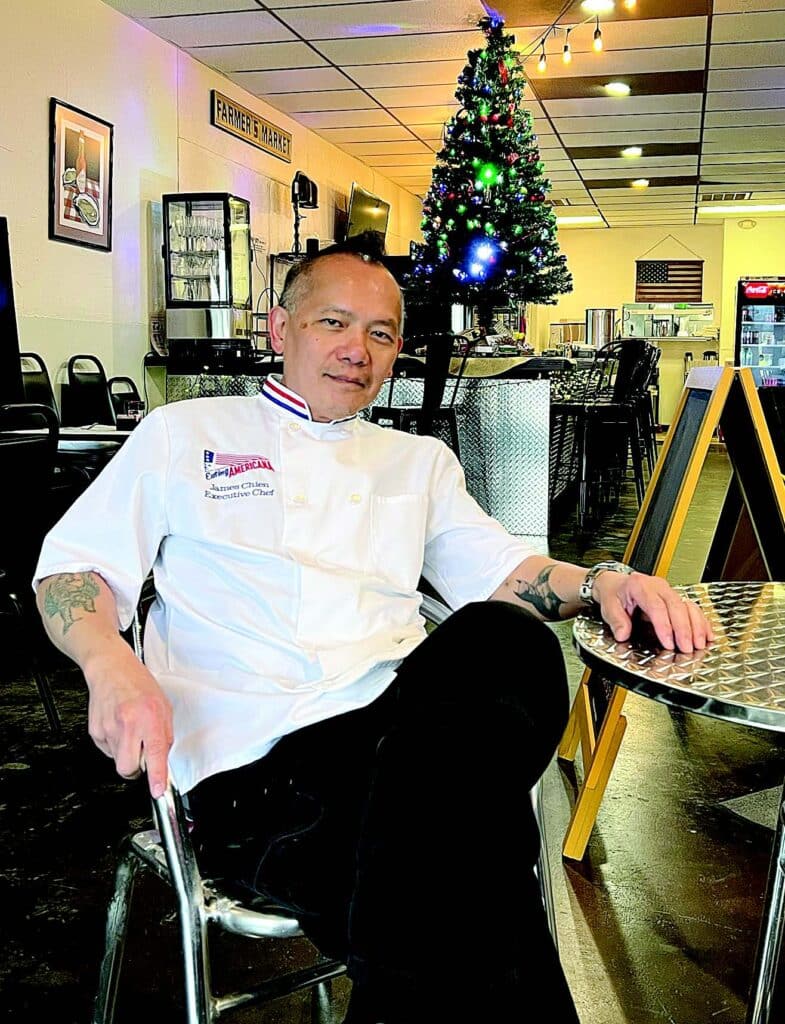
Chef James Chien has become a culinary staple in Peachtree Corners. Chien’s path to the kitchen was surprisingly nontraditional. He started as an art student, transitioned to fashion illustration and then into design.
His journey brought him to the Fashion Institute of Technology (FIT) in New York City. To support his studies, he drove a taxicab, all the while harboring a passion for culinary arts.
“I drove for two and a half years. But I always knew I wanted to be involved in the culinary industry, which to me was another art form,” he said.
Bringing a rich blend of flavors and experiences to the local food scene, chef Chien’s journey in the area began before Peachtree Corners was formally established.
His first restaurant venture, Some Like It Hot, opened in 2001. Specializing in New Orleans cuisine with an Asian twist, chef Chien pioneered the “Asian Cajun” concept. Although the restaurant closed in 2006, it left a lasting impression.
Next, chef Chien spent seven years as an executive chef for various hotels. However, corporate life left him yearning for the creativity of running his own establishment.
He opened his third restaurant, Eating Americana, in Peachtree Corners, and his loyal customers followed.
Chef Chien draws inspiration for his dishes from his extensive international travels. He also uses his professional experiences, including working under a chef who trained with the late chef Paul Prudhomme.
This diverse background informs his unique approach to “chef crafted foods,” familiar American comfort foods reimagined and elevated.
“Unapologetically American. Every meal that you’re familiar with growing up but better! What I do is not necessarily genius. But the idea of the genius behind great food,” he asserted.
Beyond the kitchen, chef Chien emphasizes connecting with his patrons. Contrary to the stereotype of the aloof chef, he believes in the power of personal touch.
He walks the dining room, meets customers, expresses gratitude and remains accessible. This philosophy of community and connection has made chef Chien a beloved figure in Peachtree Corners.
Jim Gaffey
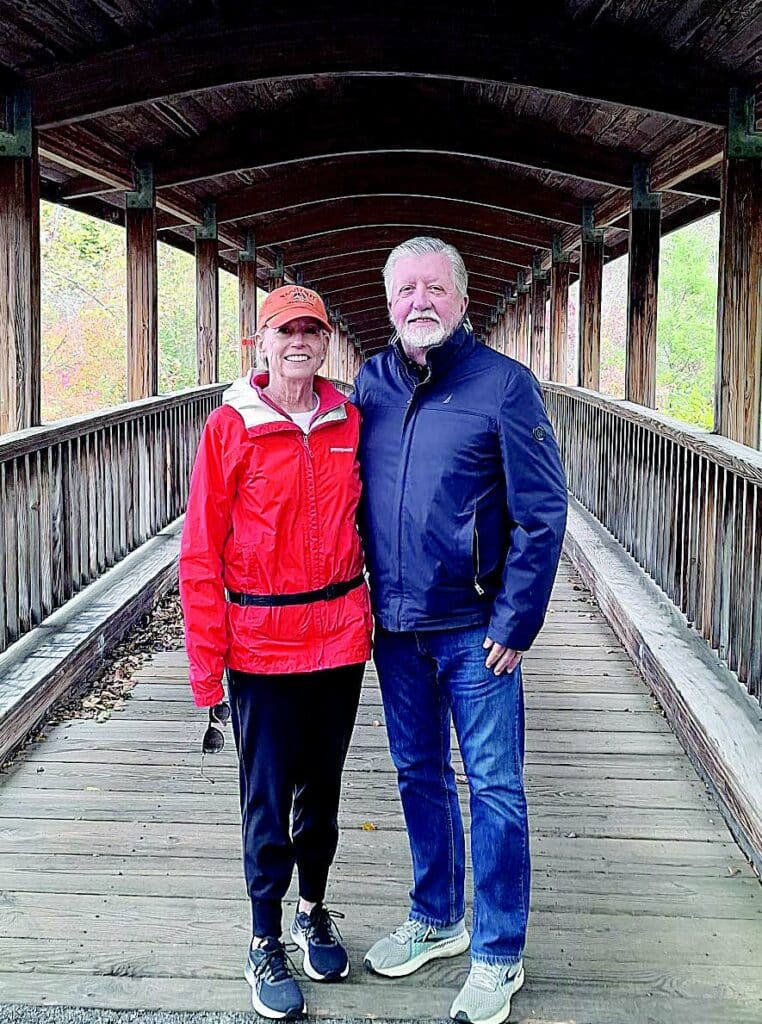
In 1980, Jim Gaffey and his young family found their home in Peachtree Corners. Influenced by his service-oriented Irish immigrant parents, Gaffey immediately began shaping the community we love today.
Gaffey reminisced, “Growing up, I witnessed my parents, particularly my mother, immerse themselves in community service. Their dedication instilled in me the value of community, and as Peachtree Corners developed, I channeled their spirit to usher in positive change.”
One of his early accomplishments was helping to stop the East Jones Bridge Rd expansion.
Gaffey’s leadership drove residents to attend a Board of Commissioners meeting in Lawrenceville, where their overwhelming presence ensured the board’s rejection of the project.
By stopping the expansion, Gaffey helped preserve land for town staples like The Forum and Simpson Elementary School.
He also led the creation of the Peachtree Corners Swim & Racquet Club in 1985, addressing a growing need for local pools. His efforts didn’t stop there.
Gaffey’s influence brought the YMCA to Peachtree Corners, initiated a marathon training program and backed community-building festivals and races.
Perhaps one of the most challenging tasks he pursued was campaigning for schools in Peachtree Corners. It was a journey filled with numerous state, county and community meetings.
Yet, Gaffey didn’t back down from the challenge. He gained the community’s support, which led to solidifying Peachtree Corners as a nurturing environment for growth and learning.
Mayor Mike Mason is a long-time friend of Gaffey’s and one of his biggest fans.
“In a time of narrow tribal alliances and polarization, he has surprised me more than once with the breadth of his life experiences,” Mason shared.
“His generosity and focus on the common good mark him, in my world, as a true old-school gentleman. He is unfailingly polite, doesn’t speak loudly when a whisper will do, and generously gives credit to others while accomplishing his goals. I am proud to call him my friend. He is a role model for young people everywhere,” he added.
His dedication to Peachtree Corners never waned, even as life took its course.
“I helped support a group of church-based women, who had formed a prayer group, as they worked to establish a mission church here,” said Gaffey. “My late wife, Terry, helped form that prayer group.”
Gaffey collaborated with the prayer group and helped in successfully bringing a mission church to town in 1994, which now hosts 1,000 families.
Mary Our Queen recently finished its beautiful traditional sanctuary on The Corners Pkwy NW. Recently, he shared his expertise with the Chabad of Gwinnett as they looked to build an Enrichment Center in Peachtree Corners.
Gaffey married his second wife, Carol, a former Simpson Elementary teacher. The duo continues to champion community causes, most notably with the Assistance League of Atlanta, where Carol served as President during the COVID-19 pandemic.
Gaffey reflected on his journey: “It was about taking lessons from those who came before me and pouring that legacy back into the community.”
Through decades of unwavering commitment, Jim Gaffey stands as a testament to the power of community spirit, laying the foundation for Peachtree Corners’ bright future.
Josh Whitlock
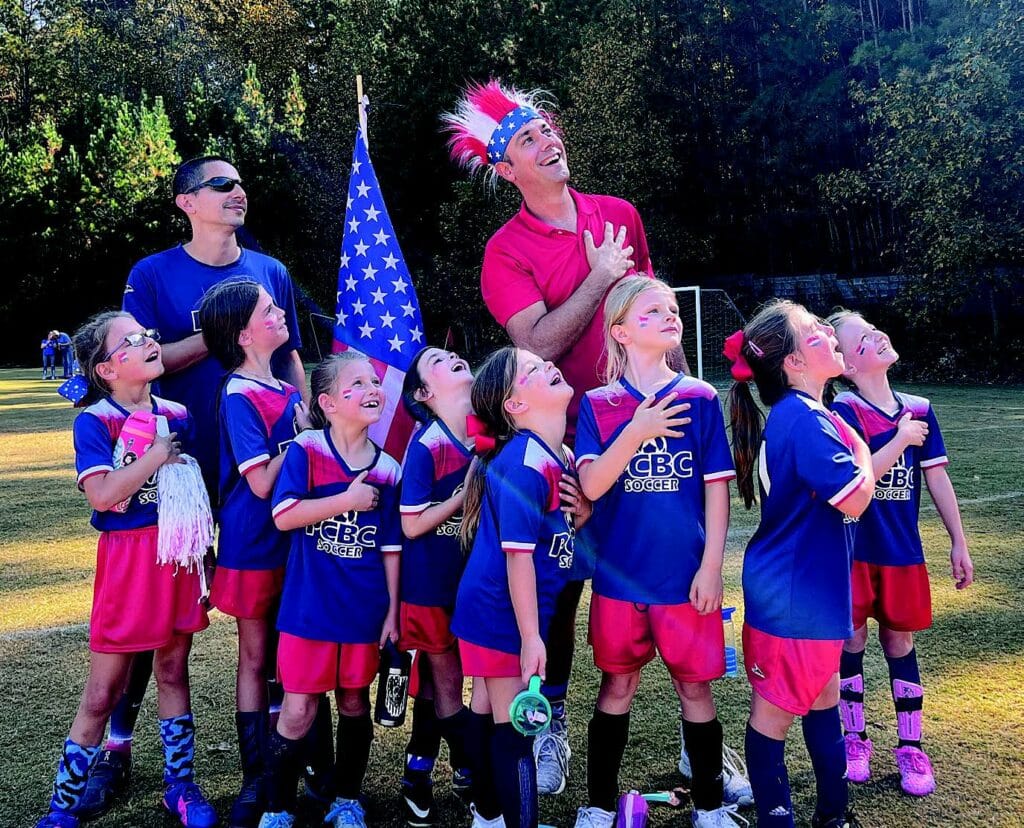
Josh Whitlock, a technology teacher at Cornerstone Christian Academy, has made a profound and fun-filled impact on youth sports.
Since moving to Peachtree Corners five years ago, Whitlock brought an innovative and inclusive method to coaching. His special approach? He emphasizes enjoyment and teamwork over competition and winning.
He believes that each player, regardless of skill level, should be actively involved and have an equal opportunity to play. Whitlock also challenged his sons to assist every player on their coed team in scoring a goal.
The experiment resulted in nine out of twelve players scoring, some for the first time.
“I like to design special trick plays to get some less experienced players a chance to score. We had one called Preston’s Special Delivery that got a kid several touchdowns last flag football season,” he explained.
Whitlock is also known for his unique coaching activities. His teams enjoy face painting with their team colors, creating creative team chants and awarding unconventional trophies to highlight individual achievements.
“I give secret missions to my players before the game. This may be something like, ‘Tell the other team, nice shot,’ or ‘say thanks to the ref at the end of the game,’ or ‘high five every player on our team,’ or ‘make five strong passes,’” he explained.
“These are ways for kids to have a goal that fits their skill level, try hard to meet that goal and celebrate the success of meeting that goal,” he said.
Aside from his role as a coach, Whitlock is deeply involved in his community. He leads the worship for children services at Perimeter Church and has a significant presence at Cornerstone Christian Academy.
His passion for helping others feel seen continues at Cornerstone, where he can name over 400 students.
His impact on the community is a testament to his dedication to making sports a positive and inclusive experience.
Louis Svehla
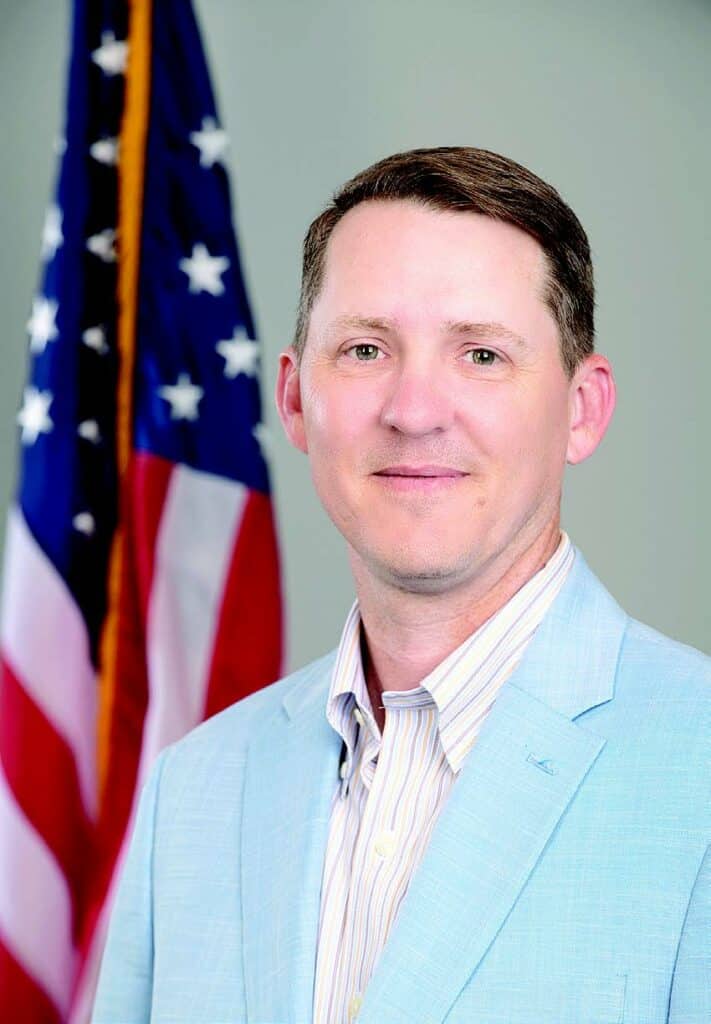
As City Communications Director, Louis Svehla has dedicated himself to the well-being of the Peachtree Corners community, touching on aspects from local business support to safety initiatives.
In his role, Svehla is responsible for overseeing various communication channels— from websites and social media to newsletters and public communications. He ensures that information is accessible, honest and easy to comprehend.
Svehla’s enthusiasm shines when discussing the Choose Peachtree Corners Shop Local app he helped to implement. The app allows residents to earn points, which can be redeemed later, for shopping at local businesses.
This initiative encourages a symbiotic relationship between local businesses and residents, creating a supportive ecosystem within the community.
“There is no cost to the public or the business, and both parties benefit,” Svehla shared. “It emphasizes supporting local small businesses, which leads to the businesses supporting the residents.”
Among the lesser known but highly impactful initiatives Svehla has assisted in is the Camera Registration program called Connect Peachtree Corners.
This program allows residents to register their home cameras into a database accessible by law enforcement. While it doesn’t grant real-time access, the registered information aids in quick evidence collection, contributing to the overall safety of the area.
Looking forward, Svehla is excited about the expansion of the Town Green, which includes a custom-designed tot lot playground focused on children six and under, as well as a 9,000 sq. ft. off-leash dog park.
Svehla and his team are also excited about providing family-oriented events at no cost, such as live music shows, the Curiosity Lab Criterium cycling race and the Atlanta Sci-Fi Film Festival.
Svehla is deeply invested in the community. Through his work, he aims to enhance the quality of life in this diverse and welcoming city, one project at a time.
Whether promoting local businesses, ensuring public safety or adding to the community’s recreational outlets, Svehla is pivotal in making Peachtree Corners a great place to live.
Michael Pugh
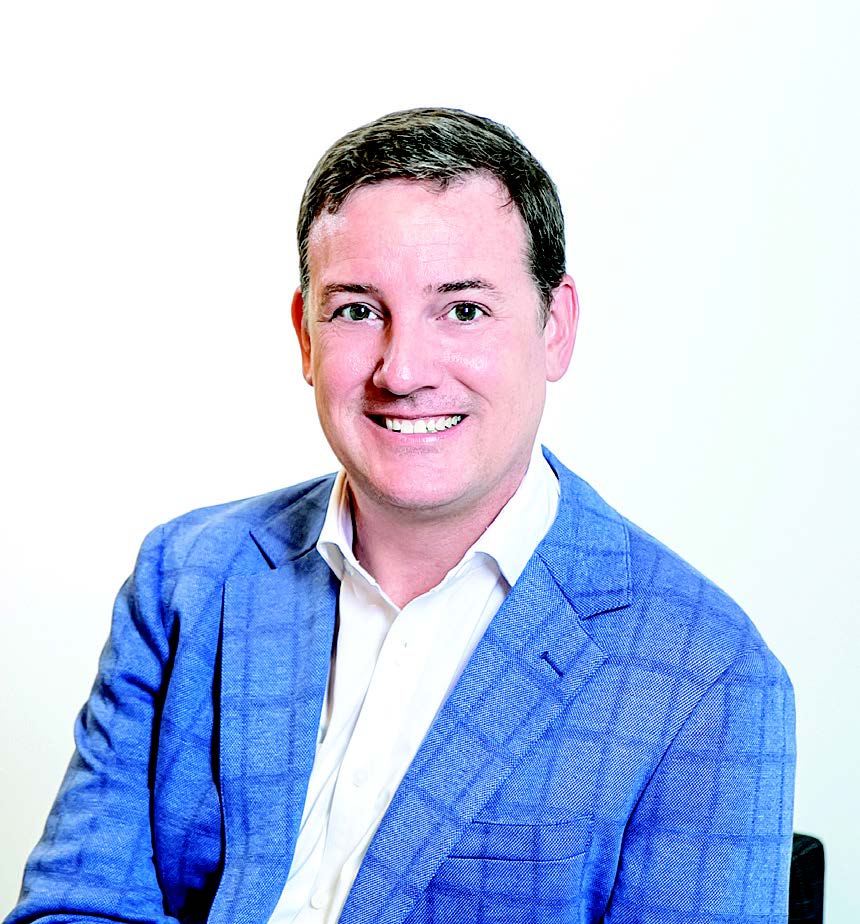
Michael Pugh is a vital part of Peachtree Corners’ community fabric. Pugh, now a partner and shareholder at Thompson, O’Brien Kappler & Nasuti, P.C., joined the firm in 2010 as an associate attorney. At that time, the firm was known as Thompson, O’Brien, Kemp & Nasuti, P.C.
After working in Peachtree Corners for the last 13 years, Pugh understands the tight-knit community atmosphere. This sense of connectedness, he finds, is shared by residents and businesses alike.
“The most appealing thing about Peachtree Corners for me is the overwhelming sense of pride in the community shared amongst residents and businesses. I also love the feeling that Peachtree Corners is a large-small town,” said Pugh.
“By that, I mean it is not usual to bump into neighbors, friends, acquaintances, colleagues and clients whether out to dinner in one of Peachtree Corners’s many restaurants or shopping,” he explained.
Pugh’s community engagement is marked by his roles in the Peachtree Corners Business Association (PCBA) and the United Peachtree Corners Civic Association (UPCCCA).
His involvement with the PCBA includes contributing to business growth initiatives and community outreach. In the UPCCCA, Pugh enhances residents’ quality of life, including hosting events and debates and awarding scholarships.
Pugh’s legal acumen, especially in bankruptcy litigation, extends beyond professional realms into community service. He participates in speaker panels, shares insights in his field, and does pro bono work with Gwinnett County Legal Aid.
In addition to his board roles, Pugh contributes to the community through his law firm’s involvement in local fundraisers and events. His expertise in estate planning further assists residents, providing vital legal services in preparing wills and handling probate matters.
Michael Pugh’s dedication to Peachtree Corners is evident in his diverse roles and contributions. From providing legal expertise to engaging in community initiatives, he embodies a balance of professional excellence and community commitment.
Ora Douglass
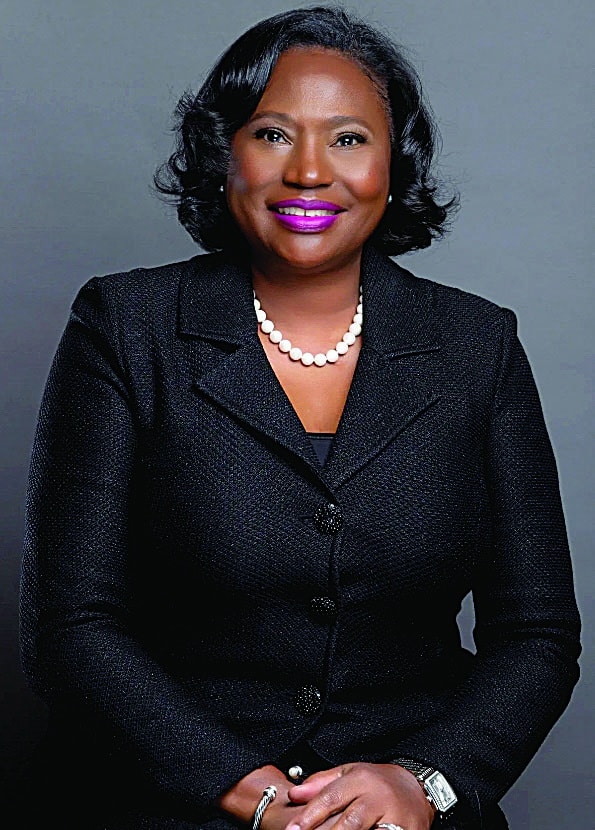
Freshly elected to the Peachtree Corners City Council, Ora Douglass brings a rich history of service and community engagement to Peachtree Corners.
Douglass and her husband moved from Norcross to Peachtree Corners 25 years ago. Drawn by the community-focused environment and amenities like the Robert D. Fowler YMCA, Peachtree Corners was a natural fit.
Douglass’ first job out of nursing school was as a commissioned officer in the U.S. Army Nurse Corps. She credits the Army, and her stint at Tripler Army Medical Center in Honolulu for her values of discipline, respect and cultural sensitivity.
“As an officer, it was my responsibility to demonstrate leadership at all times. There were many rules to be followed; the first was to represent the U.S. Army in a respectable manner at all times,” said Douglass.
“As a nurse, I had to lean on the ethical principles of justice, beneficence, nonmaleficence, accountability, fidelity, autonomy and veracity. These principles shaped who I am as an individual. I believe being an Army Officer and a registered nurse enhanced what was already there,” he explained.
After serving two decades in hospital administration, Douglass returned to federal service. She led a significant expansion of the home-based primary and palliative care program at the Atlanta VA Medical Center.
Douglass also successfully secured a $10 million grant to extend services to rural areas, providing comprehensive care to veterans.
As the chartering president of the Peachtree Corners chapter of Alpha Kappa Alpha Sorority, Douglass has led community-focused initiatives.
“The fundraising component of our chapter is a 501c3., Georgia Pearls of Service Foundation (GPOS). GPOS raises funds each year to support community service programs and organizations such as Backpack Buddies and the YMCA,” Douglass continued.
“I firmly believe that to whom much is given, much is required. Even though I was orphaned at 18 months, I’ve been given very much, as evidenced by being Councilwoman Elect for post 5. I plan to coordinate with the city and other service organizations to offer community events for Peachtree Corners,” she confidently asserted.
She envisions festivals celebrating diverse cultures, health fairs, job fairs and more, reflecting her commitment to inclusivity and community welfare.
Douglass’ efforts in securing resources for veterans, addressing childhood hunger and planning community events showcase her commitment to making Peachtree Corners a better place for all its residents.
Papa Mensah
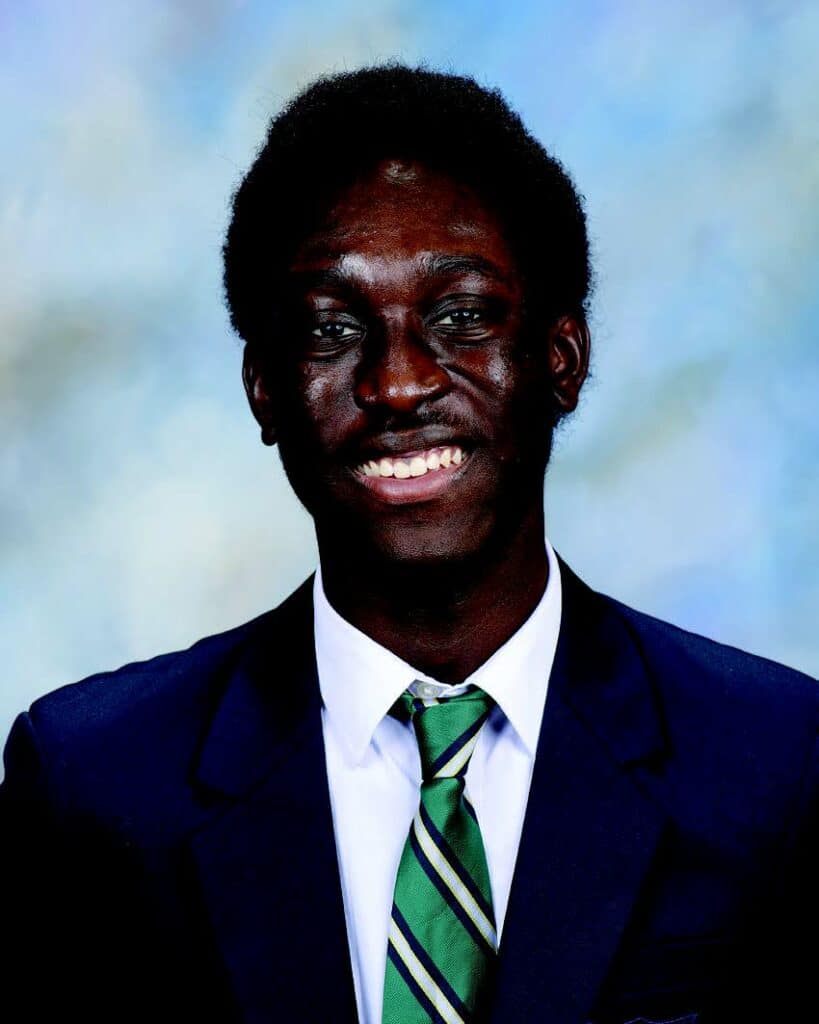
Born and raised in Peachtree Corners, Papa Mensah is currently a senior at Wesleyan School. While in school, he was integral in fostering the development of a Student-Led Worship program.
“My faith in Jesus influences every aspect of my life, especially my perspective on community service. Some verses that I cherish are Galatians 6:2 and 1 Peter 4:8-10,” said Mensah.
“The 1 Peter verse emphasizes deep love and using our gifts to serve others. It mirrors my approach to organizing worship services and how I view community service,” he explained.
“It’s not just about doing good deeds; it’s about genuinely caring for one another. This idea of being faithful stewards of God’s grace has made me more aware of the diverse needs in our community,” he continued.
He contributes heavily to the Peachtree Corners community and beyond. GIVE Charity, co-founded with his brother Nana, reflects Mensah’s dedication to educational equity and addressing global issues.
The Mensah brothers spent three years living with family members in Ghana as children. This experience, along with their mother’s teaching services in Ghana, inspired the charity.
The initiative refurbishes and repurposes technology for schools in Subi, Ghana. It addresses the educational resource gap, inspired by his mother’s educational bond in Ghana and his own in Peachtree Corners.
“I am very aware of the privilege I have in attending a school like Wesleyan, but I also recognize my educational foundation, which was built in Ghana. Not everyone has this same experience,” he said.
“My older cousin Mimi who lives in Ghana, my older brother Nana and I had a vision to reach out to local technology companies in the metro Atlanta area. We look for companies with surplus or slightly outdated devices that could be repurposed for classroom use in Subi,” he remarked.
He credits his family, particularly his parents and brother Nana, for their support and exemplifying excellence. Their sacrifices have been a motivating force behind his commitment to GIVE Charity and his broader goals.
Mensah plans to integrate technology with community service further. He aims to develop machine learning software for disease detection, targeting underserved communities.
“We hope to continue growing GIVE to have a greater impact in the number of schools in Subi reached, the number of devices repurposed, and the number of people inspired to take action in their communities,” he asserted.
Scott Hilton
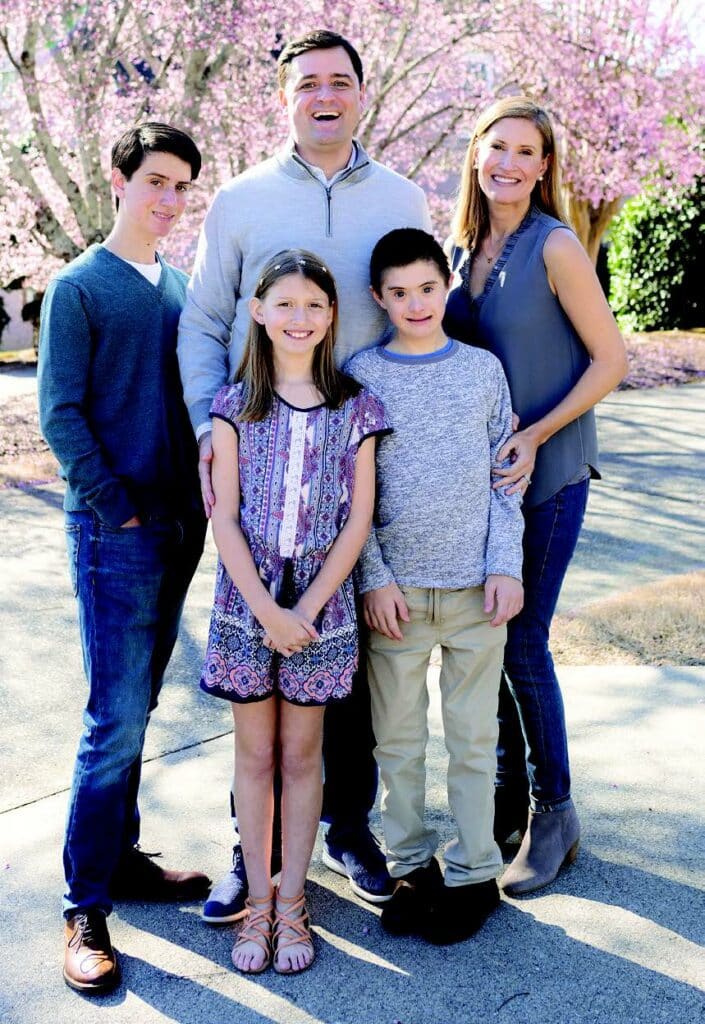
Scott Hilton and his family moved to Peachtree Corners in December 2011. As a Georgia State Representative, he has played a significant role in the community’s development.
During his term in the Georgia General Assembly, Hilton championed school choice and the empowerment of individuals with disabilities.
His legislative efforts, particularly the passage of House Bill 787, led to the establishment of the Paul Duke STEM School.
The bill also created the International Charter Academy in Peachtree Corners, a new Japanese-English dual-language immersion school. These institutions have broadened educational options in the community.
“As the father of three children, I’ve witnessed firsthand how every child learns differently. Students and families should be given an educational option that best fits their needs,” he stated.
Hilton advocates for reducing government regulations and taxes to spur small business growth.
“The reality is that small businesses are the economic engine of Georgia, employing more than 70% of all workers in our state,” he asserted.
My wife, Meredith, is an amazing small business owner and local attorney. She provides estate planning services for many in our community. I see daily the government red tape, taxes and hurdles her business faces.”
Currently, his focus includes collaborating with the Georgia Department of Economic Development to attract quality companies and high-paying jobs. He believes revitalizing Technology Park in Peachtree Corners is a significant first step.
Hilton holds leadership roles at the Robert D. Fowler YMCA and the Georgia Department of Behavioral Health and Developmental Disabilities.
“Long before I considered a run for the State House, I worked as a community volunteer serving on our HOA Board, United Peachtree Corners Civic Association (UPCCA), and the Fowler YMCA,” Hilton explained.
“These roles taught me so much about what’s important to our community and what makes it tick. I absolutely love Peachtree Corners, and my goal is to keep our city one of the best places in Georgia to live, work and raise a family,” he concluded.
Suzanna Martinez
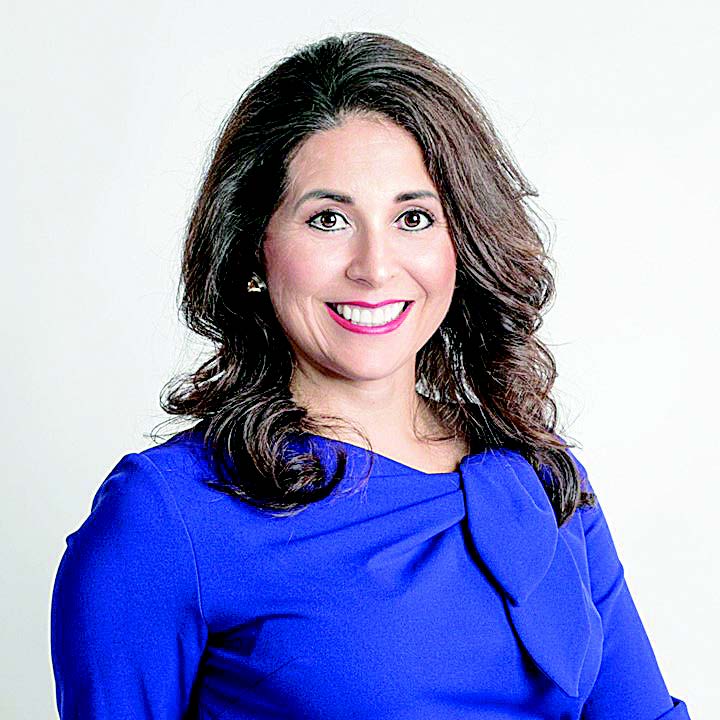
Suzanna Martinez‘s journey from Denver, Colorado, to Peachtree Corners, Georgia, in June 2020 is a story of purpose and passion. The search for a new home brought Martinez and her family to a place where the community’s energy was palpable.
With a personal history in the Professional Employer Organization (PEO) industry, Martinez identified an opportunity to enhance corporate operations across sectors.
“I assist my clients in achieving purchasing power for health insurance, workers’ compensation and other HR solutions. A PEO enables company leaders to concentrate on their bottom line. Consolidating the backend of HR operations saves time and money and provides a unified system for enhanced efficiency,” Martinez shared.
Her enterprise has become integral to the local business landscape, enabling her to invest deeply in the community through the Peachtree Corners Business Association and scholarship initiatives.
“As a business owner, I invest time in serving the local Peachtree Corners Business Association and be involved in our community outreach for nonprofit grants and college scholarships,” explains Martinez.
Martinez’s roles, including her position on the Peachtree Corners Business Association Board and her ambassadorship for the Georgia Hispanic Chamber of Commerce, create movements that bolster community and economic development.
She views her work with nonprofits and educational institutions as vital for nurturing the next generation of leaders and entrepreneurs in Peachtree Corners and the broader Hispanic community.
Her influence extends to arts and culture, mainly through her involvement with the Georgia Latino Film Festival.
Martinez firmly believes in the arts’ power to create inclusivity and serve as launching pads for local talent.
Martinez has played a pivotal role in philanthropic efforts that resonate throughout Peachtree Corners.
Through PCBA’s charity events, she has helped raise significant funds for various organizations and created avenues for local businesses to gain visibility and support.
Martinez envisions first expanding her company to provide jobs and further support to the community.
Additionally, her sights are set on completing “La Luchador,” a memoir reflecting her journey from hardship to success, which she hopes to see adapted into a film, celebrating the rich tapestry of Latino culture and the spirit of Peachtree Corners.
As Peachtree Corners grows, Martinez stands at the forefront, embodying the spirit of entrepreneurial innovation and cultural inclusion.
With a heart set on fostering a community where business and culture converge, her upcoming initiatives promise to enrich Peachtree Corners even further.
Taylor Hammett
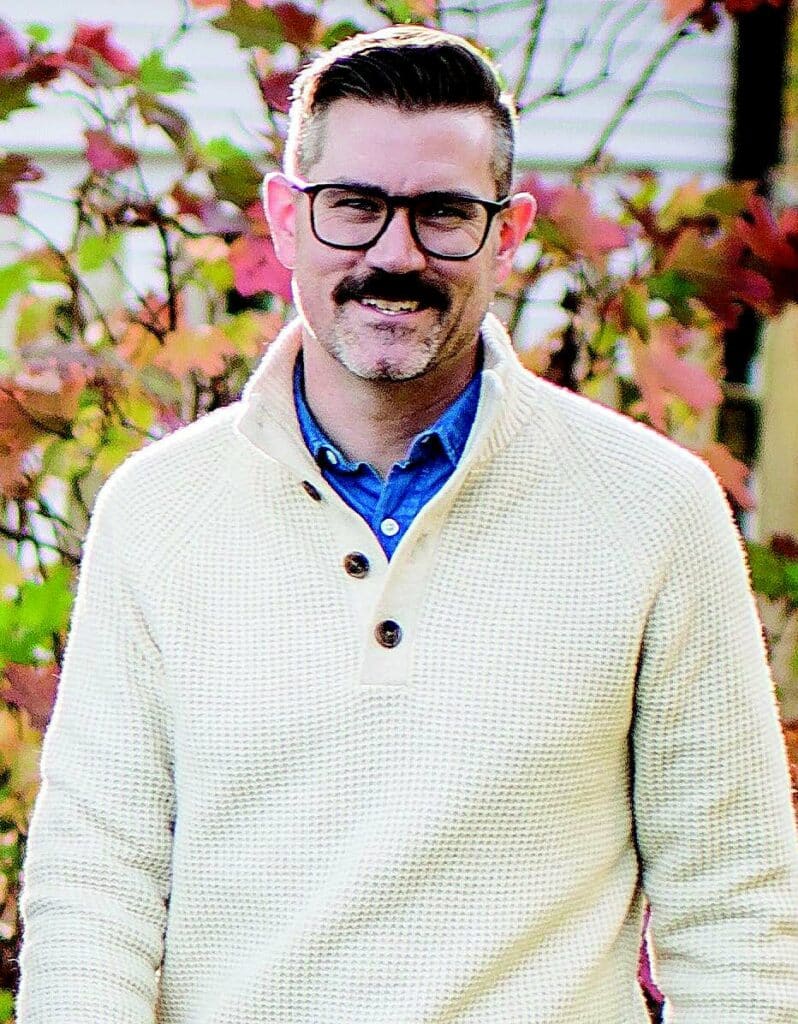
Taylor Hammett, who serves as the Lead Pastor at North End Collective, founded Launch Local Network, which describes itself asincubating good works by equipping others to launch hyperlocal, small-scale, redemptive initiatives in their city.
Hammett and his team envision a community where individuals, regardless of their faith or non-faith, can unite to make a meaningful impact right where they live.
Each role gives Hammett a unique perspective as he identifies opportunities for “good work” in the vulnerable pockets of Peachtree Corners.
While North End Collective has always worked in these spaces, Launch Local Network extends this vision to the broader community, inviting everyone to contribute to the common good.
Hammett is excited about several projects, but the current concession stand and mobile coffee cart initiatives are particularly impactful.
“For the past six months, we’ve been running a concession stand and a mobile coffee cart to engage with the social desires of our city, snacks and coffee, and to help meet the social needs of our city, which are food, clothing and shelter,” Hammett shared.
“It’s amazing the depth of conversation that can happen between two people or a small group in the time it takes to make someone’s caramel oat milk latte!” he said excitedly.
“After just over six months of operations, our board of directors has already set aside our first $10,000 disbursement to give to organizations addressing food insecurity, housing, education and addiction recovery.”
Though the organization is relatively new, Hammett looks forward to leveraging his experience in business and non-profit work to help others in the community bring their ideas to life for a positive impact.
Launch Local Network welcomes volunteer involvement, particularly in running concessions at Pinckneyville Park. The organization will also host events next year aimed at helping community members explore and act on their ideas for “good works.”
Interested parties can contribute financially through the Launch Local Network website at www.launchlocal.network/give, ensuring that donations go toward amplifying the excellent work already happening rather than just sustaining the organization.
To stay in the loop, community members are encouraged to follow Launch Local Network on social media or reach out directly to Hammett via email at taylor@launchlocal.network.
William Susskind and Rohan Kumar
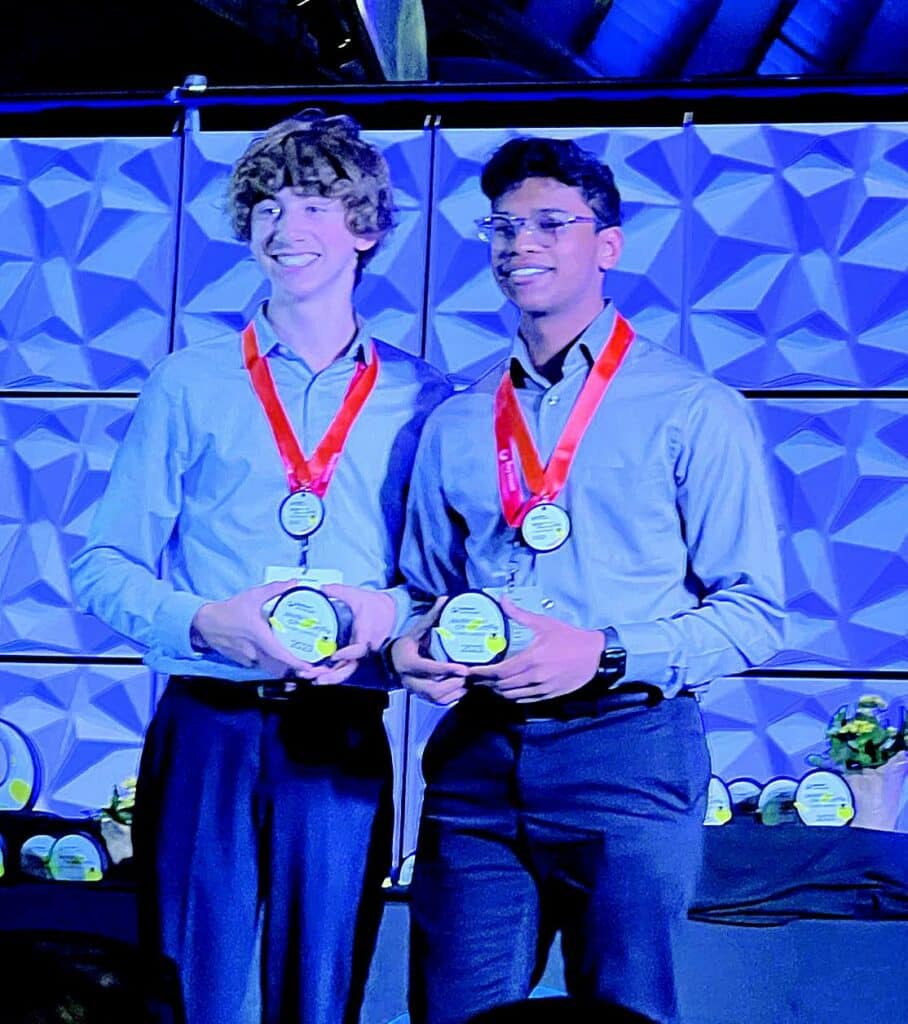
Rohan Kumar and William Susskind are two award-winning Paul Duke STEM High School students. Together, they developed DoorBully, a device designed to counteract the threat of school shootings.
Kumar, a life-long resident of Peachtree Corners, attributes the development of DoorBully to the community-oriented atmosphere of the suburb.
He also credits the collaborative culture at Paul Duke. The project received positive feedback following its presentation at the National Invention Convention.
“The school’s culture of collaboration, empathy, innovation and diversity has made it almost second nature to think about creating products that benefit our community. It’s at Paul Duke that I’ve acquired invaluable skills, both technical and social, which have been essential in developing DoorBully,” Kumar said.
Susskind, also a lifelong resident, was motivated to join Kumar in creating DoorBully after becoming aware of the prevalence of school shootings in the United States.
The engineering and mechatronics studies at Paul Duke were pivotal in the invention process.
“I was fortunate to immerse myself in engineering and mechatronics, which honed my technical skills to bring our concepts to fruition. The commitment of our teachers allowed us to engage in numerous competitions and present our ideas to influential figures, furthering our project’s reach and impact,” said Susskind.
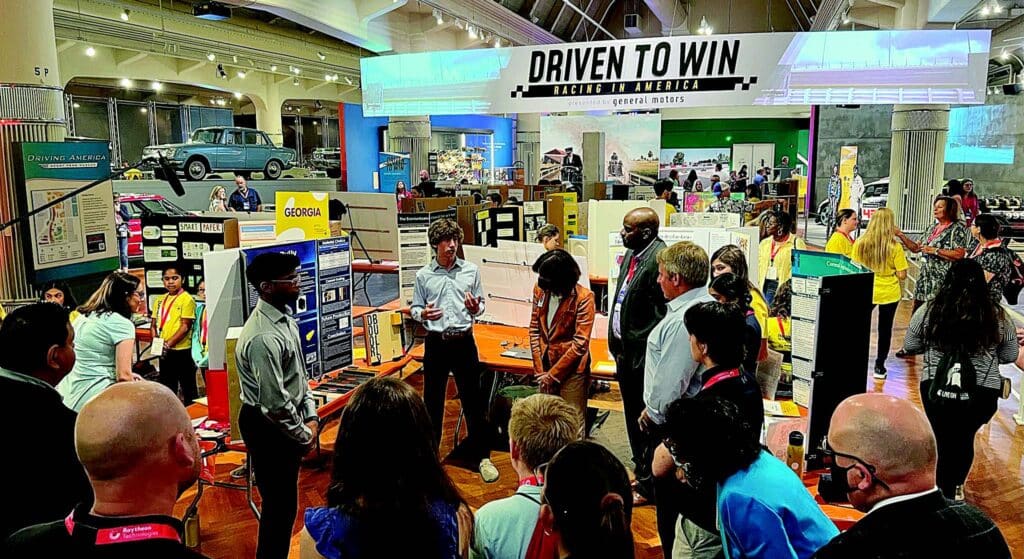
The invention has received local media attention and led to establishing a student club focused on innovation. The implementation of DoorBully in Peachtree Corners schools indicates the broader potential for student-led safety initiatives.
“As for the future of our invention, we’re not only eyeing local implementation but also global expansion. DoorBully is in place at Fulton Science Academy, and discussions are underway with Bryan County. This is just the beginning of its journey to enhance community safety everywhere,” said Susskind.
Kumar and Susskind’s efforts have been recognized by the community, including the Norcross Police Department and local educators. The students advise peers interested in innovation to embrace failure as part of the learning process and to engage in the community.
“My advice to other young innovators in Peachtree Corners is not to fear failure. Embrace it because failure is an extraordinary teacher,” shared Kumar.
“Each setback is an opportunity to learn and refine your ideas, and each success will only fuel your passion further. So, keep inventing, keep iterating and stay committed to creating solutions that positively impact our community,” he added.
Zoey Schlueter

Zoey Schlueter, involved with the National Charity League since the seventh grade, has woven her commitment to philanthropy into the very fabric of her life.
Her early initiation into the world of service with the National Charity League ignited a passion for volunteering, highlighting charity work’s profound impact on local communities.
As co-president of Greater Atlanta Christian School’s Beta Club chapter, Schlueter has led numerous initiatives, but she finds the organization of the Special Olympics particularly rewarding.
“Special Olympic events are extremely impactful because Beta Club members can work directly with the Olympians throughout the day. I love organizing this event because it is so much fun for both the Beta Club members and the Olympians, and it creates a deeper understanding of the disability community for the Beta Club members involved,” she shared.
Holding the prestigious role of Head Prefect, Schlueter’s leadership extends into enhancing student culture and addressing community issues.
“I work with Maddie Burrough, Greater Atlanta Christian’s Service Prefect, to highlight service opportunities that go beyond Greater Atlanta Christian School and connect with our broader Norcross community,” Schlueter continued.
“Specifically, one thing that the prefects work closely with is Can-A-Thon, a collection of cans for the Salvation Army, helping fight against food insecurity. It is exciting to see the impact that we can make not only at GAC but in the Atlanta area, too!” she beamed.
Schlueter’s insights into the community spirit of Peachtree Corners were sharpened through her summer internship at Peachtree Corners Magazine.
“Being able to meet the people I was writing about face-to-face and hear their stories and experiences gave me perspective on the importance of the community around me,” she reflects.
“Peachtree Corners has so many individuals who positively influence the world around us daily and being able to see that over the past summer was incredible, and I am so grateful for that experience,” she continued.
Schlueter’s journey is a testament to the younger generation’s potential to lead with heart and vision, creating ripples of change that can grow into waves of community transformation.
As she prepares to take the following steps in her career, one thing is clear: she wants writing to serve as a catalyst for good, continuing her unwavering commitment to the service she nurtured in Peachtree Corners.
Related
Kristen Corley is an Atlanta native with over a decade of experience in content creation. She lives in Historic Norcross with her family and writes "Young Norcross," a weekly newsletter that focuses on building community and local engagement.

City Government
Peachtree Corners Hosts Discussion About the Future of Local Policing
Published
1 week agoon
May 12, 2025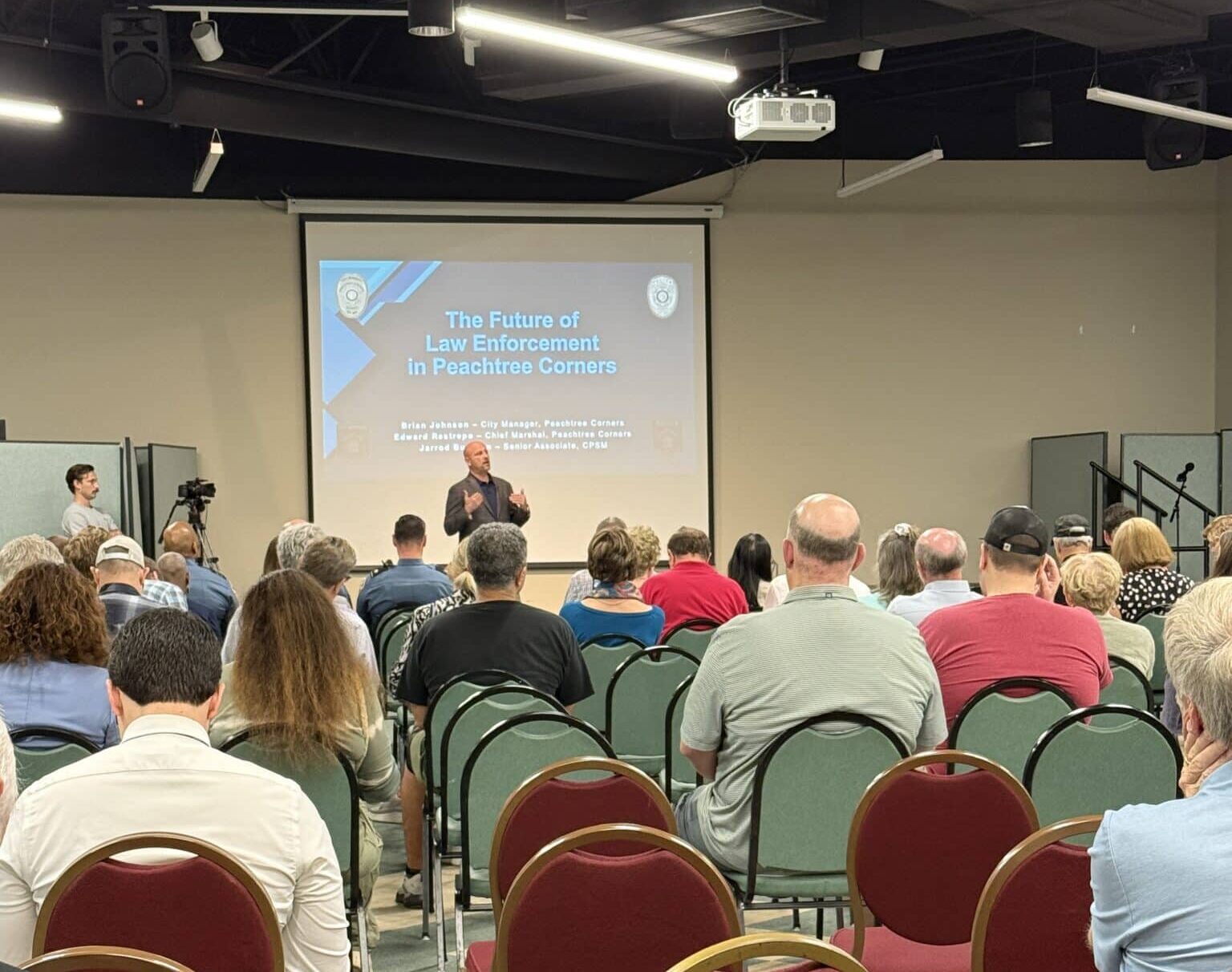
Although crime isn’t on the rise, and the Gwinnett County Police Department (GCPD) is fulfilling its role in fighting crime, the City of Peachtree Corners is asking residents, business owners and city stakeholders if they believe the city should form its own police department.
With over 100 people in attendance, City Manager Brian Johnson led the discussion about the future of policing in Peachtree Corners. He presented the findings from a survey conducted by the Center for Public Safety Management (CPSM), a nationally-recognized law enforcement consulting and training firm, as well as information about patrol officer staffing, response times, costs to tax payers and a potential timeline.
Ensuring public safety
Johnson kicked off his presentation by explaining that it is the duty of the mayor and city council to ensure public safety, including reviewing law enforcement.
“Maybe it needs to grow, maybe it needs to change its focus. But city council is the one that has the decision-making responsibility,” he said.
He was also adamant that this isn’t a done deal.

“I hit this point already, but I want to hit it again. This is the start of a conversation, a community conversation and feedback to council. There hasn’t been a decision,” he said. “Council has not received this presentation from me. They’re here to watch and learn from your feedback of this.”
Mayor Mike Mason was present at the meeting, along with all of the city council members except Eric Christ who was out of town and watching remotely.
Issues and obstacles
Johnson explained that the grounds for the inquiry were based on issues about communication, access to information and enforcement of city-specific ordinances. He cited an example where a city rule that private residences can’t be rented on a short-term basis like Vrbo or Airbnb wasn’t enforced by GCPD. An owner tried to circumvent the ordinance by only renting the outside of the house. A loud pool party ensued, and frustrated neighbors dialed 911.
“Officers showed up and they said, ‘We can’t enforce the city’s noise ordinance,’” Johnson said.
The first stage to fix this problem was creating the marshal program to bridge the gap between code enforcement and GCPD.
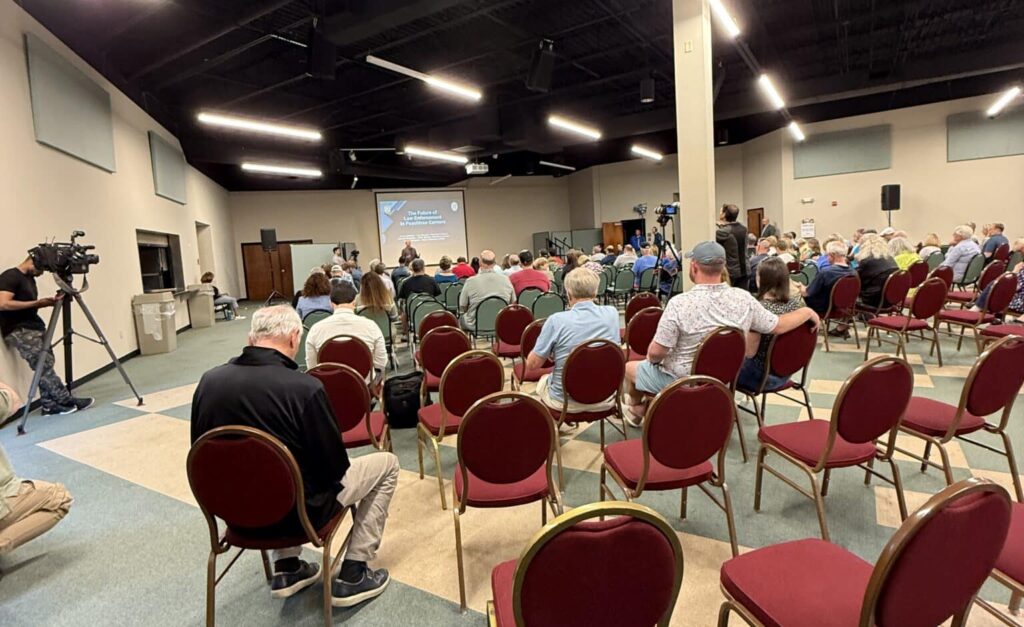
“[We thought] they would be able to enforce both local ordinance and state law, since they are a function of the city, and they could maybe be a force multiplier for Gwinnett since [marshals] don’t have to respond to 911 calls,” said Johnson.
But other issues arose shortly after the department was formed.
“We were still working towards getting that good balance, but we have been faced recently with a couple of things that make it harder for us,” said Johnson.
Seeking shared access
Instead of GCPD giving PTC marshals read-only, quick access to incident reports, dispatch calls and other information, the marshals department was required to file open records requests through the same process as any civilian.
“They were denied, as well as the city of Sugar Hill, [when] asked for the ability to see, not change, but see the computer-aided dispatch information, so that they would know where Gwinnett County police officers were; so that they could avoid stepping on their toes or maybe looking to support their efforts, and they haven’t been granted that,” said Johnson.
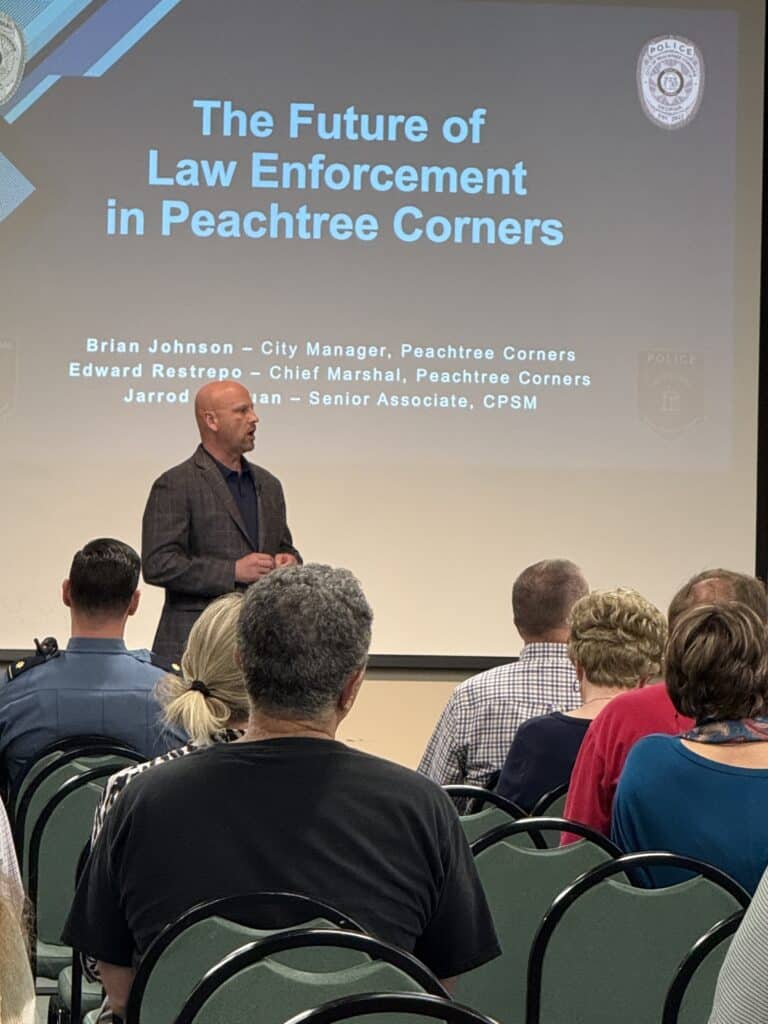
He added that the GCPD has video cameras on certain roadways that are used for various reasons, and law enforcement can use them when there’s crime in the area. Peachtree Corners marshals were denied access to those cameras.
“Conversely, we have a couple hundred cameras in the city, and we definitely want them to have access to them,” said Johnson. “So the frustration out of not being able to get that symbiosis between the marshals and police made us start thinking, all right, you know, is there another option?”
Community feedback
CPSM utilized data from GCPD to discern if Peachtree Corners could feasibly stand its own force. It also took into consideration crime trends, costs and many other factors. It recommended a 55-officer department, costing $12.1 million annually, with a $2.2 million upfront cost.
Comparing the two options to “renting vs. owning” the primary law enforcement agency in the city, Johnson presented pros and cons for each. Once the question-and-answer portion began, there was no obvious choice. Men and women, young and more advanced in age, had both similar and differing opinions.
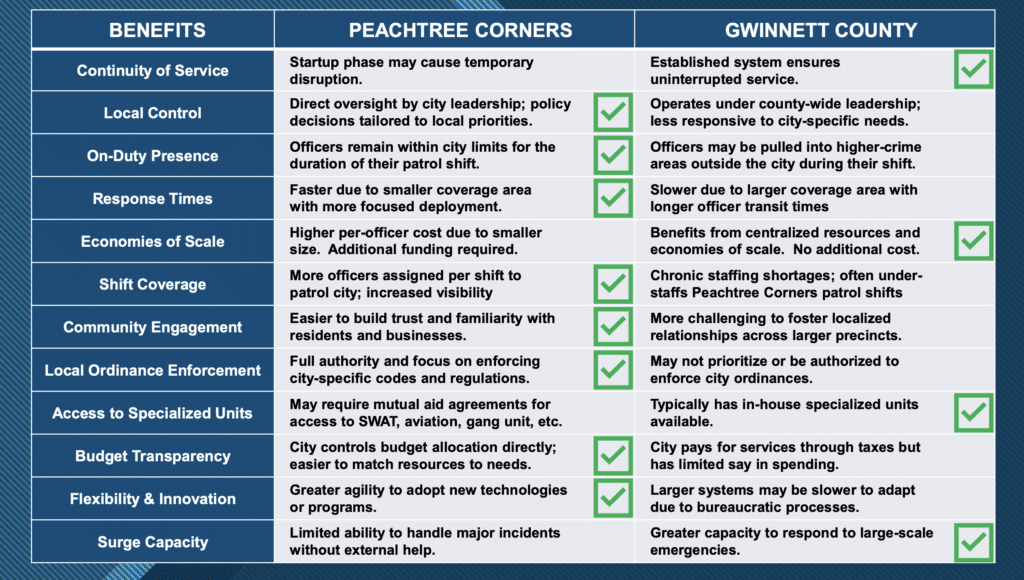
One young man, who identified himself as a local small business owner named Alexander, argued that with artificial intelligence increasing the efficiency of administrative tasks, perhaps the city wouldn’t need a full 68-man department of civilians and sworn officers.
Some accused the city of devising a solution in need of a problem. Others were concerned that paying approximately $100,00 for a study was throwing good money after bad.
But at the end of it all, the city is continuing to seek feedback and is encouraging everyone to make informed decisions. The meeting was taped and is available on the city website along with Johnson’s PowerPoint presentation, a copy of the study done by CPSM and a survey.
As far as a timeline goes, city officials would like folks to take the summer to mull it over and come back in the fall to take another look at the proposal.
Related
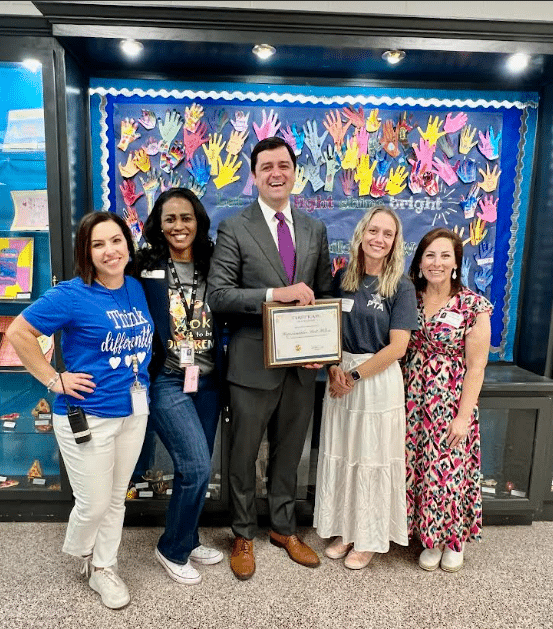
Simpson Elementary School celebrated Exceptional Children’s Week (ECW) last month with five days of special activities to recognize their special needs population and all of their exceptional students.
April 14–18 is set aside each year to celebrate children with disabilities, gifts and talents. This year’s ECW theme was Bridging Gaps and Building Futures, and the school was happy to take part.
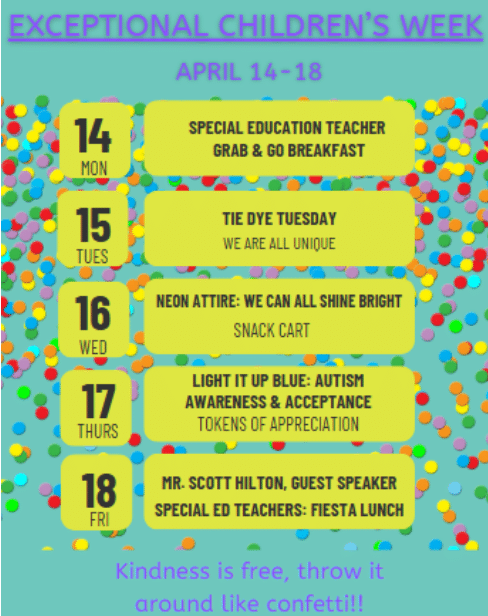
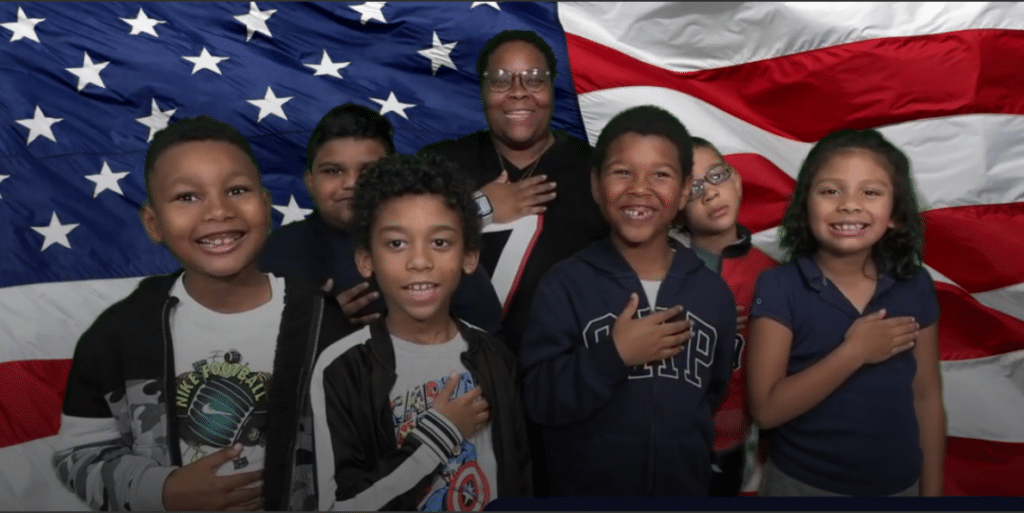
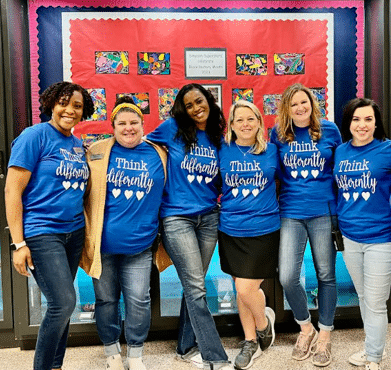
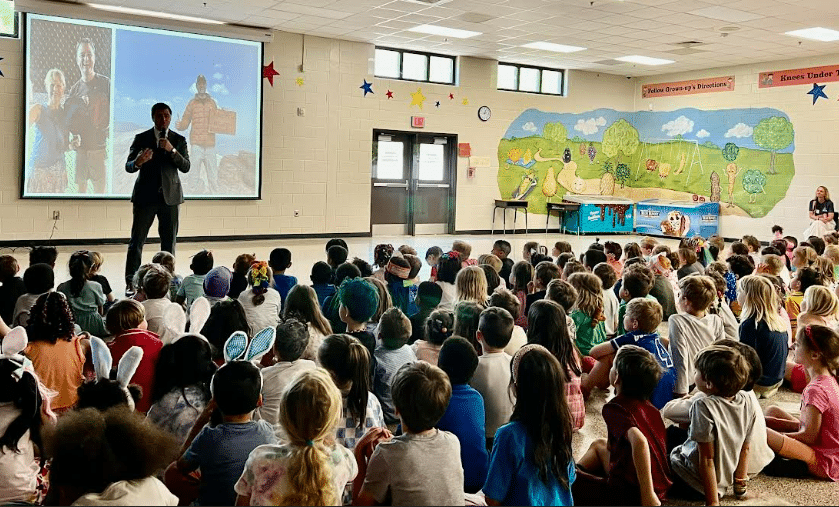
They highlighted each day of the week on the morning news with fun facts about notable people in society — and throughout history — who have overcome challenges with their disabilities, including actor Daniel Radcliffe (who has lived with dyspraxia for his entire life), Tom Cruise, Whoopi Goldberg, Frida Kahlo and Helen Keller.
Simpson Elementary’s technology team also pre-recorded various special needs classes reciting the Pledge of Allegiance every day of the week.
Guest speaker
To end their ECW with a bang, they invited former Simpson Elementary parent, State Representative Scott Hilton, to come in and speak to their K-2 classes about raising his son, Chase (who is autistic and now a student at Norcross High School), and how being different is okay.
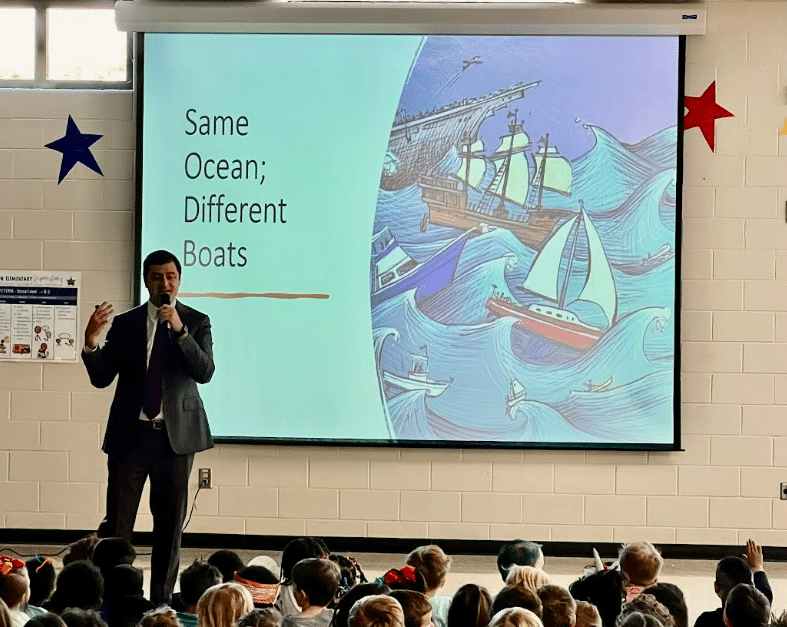
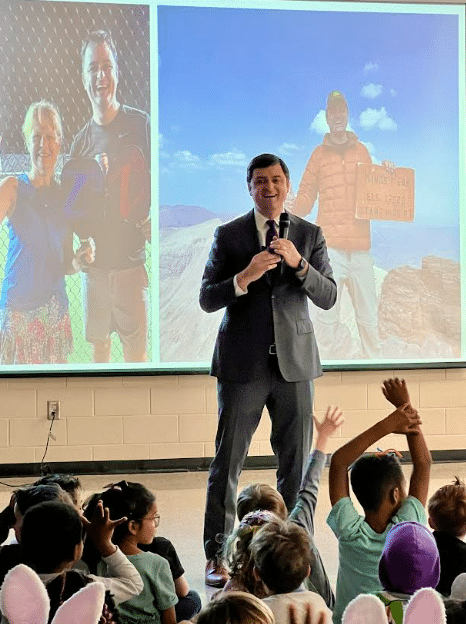
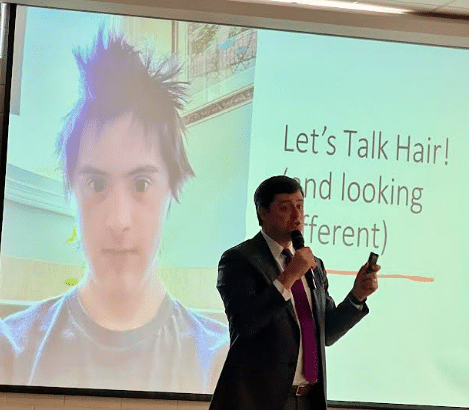
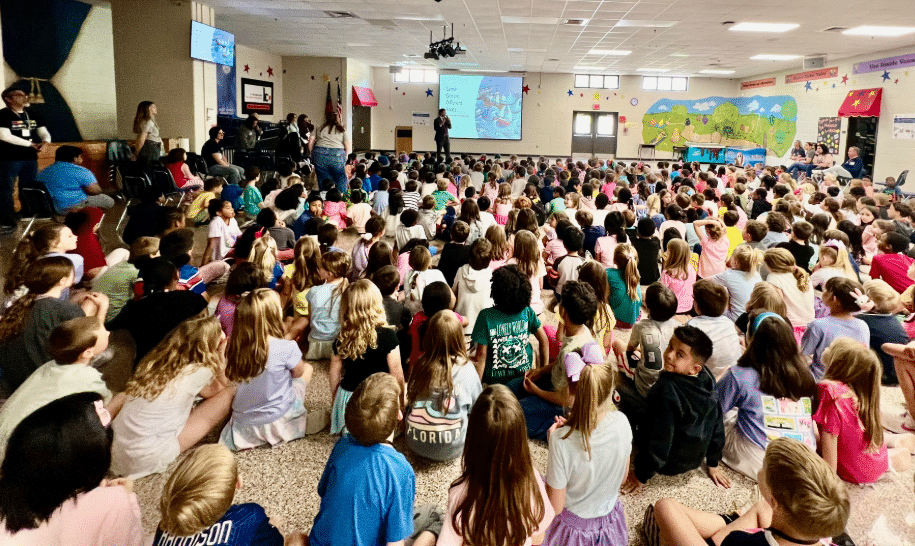
“Showing kindness and being inclusive is the best version of humanity,” said Dr. Taffeta Connery, Simpson Elementary School principal, in a statement about the event.
“Simpson Elementary has a special needs population of 214 (23%) of 946 students. [And] … we strive to ensure that our students are valued, recognized and instilled with high expectations for all.”
For more about Simpson Elementary, visit simpsones.gcpsk12.org.
Related
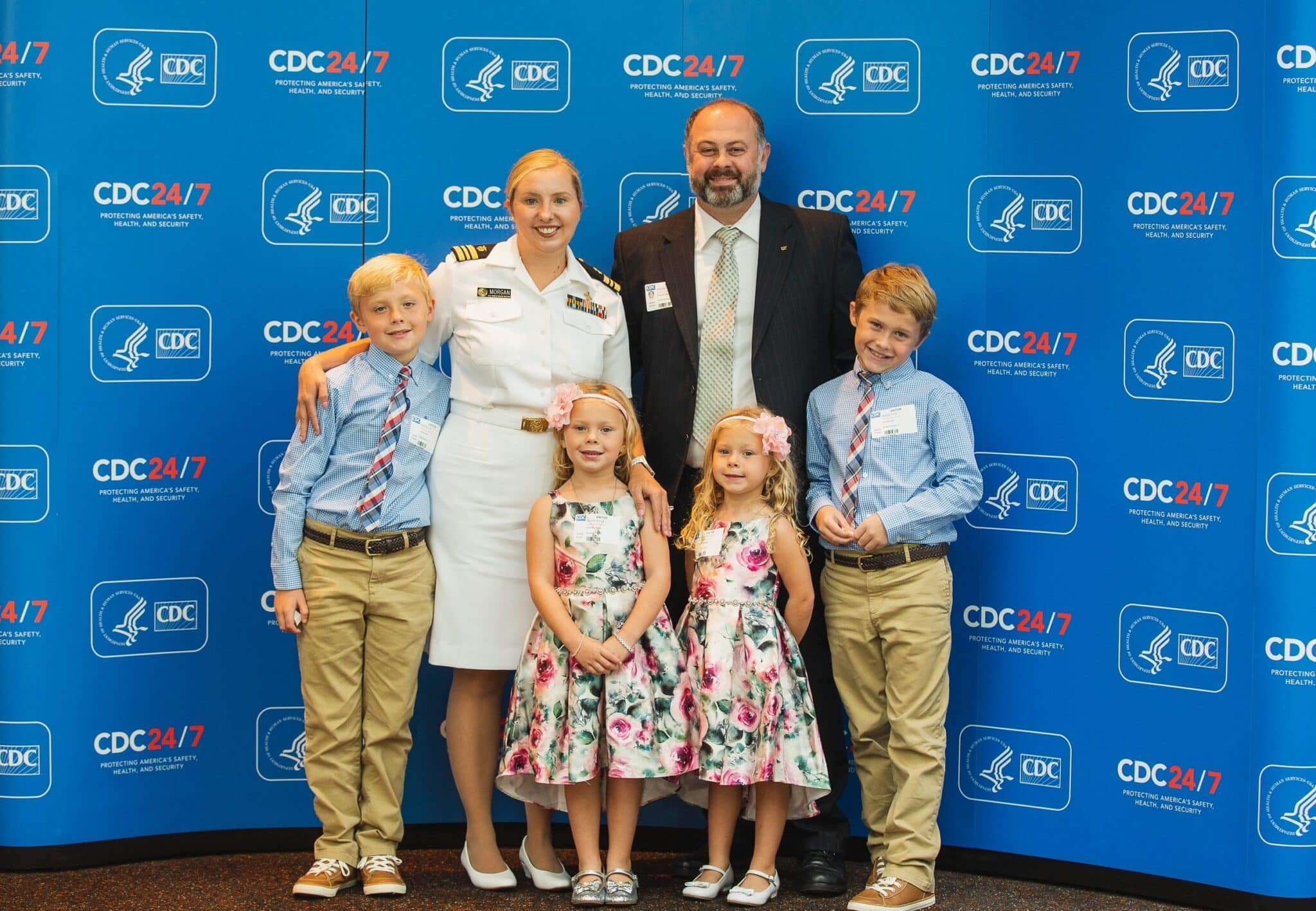
Motherhood comes with a lot of moving parts. For these Peachtree Corners moms, it also means leading teams, building careers and keeping the family schedule running. Most days, all at once.
This Mother’s Day, we’re spotlighting seven women in our community who are doing just that. They’re professionals in full-time leadership roles, showing up to strategy meetings by day and soccer games by night. They’re problem-solvers, planners, caregivers and coaches.
What connects them most isn’t just what they do, it’s how they do it. With intention. With humor. With support from partners, parents, friends and neighbors. And with a deep appreciation for the community they’ve built in Peachtree Corners.
Through their stories, we celebrate more than titles and to-do lists. We honor the quiet, constant work of showing up.
Tracy Lee
Tracy Lee leads with heart and vision as CEO of This Dot Labs, a software consultancy focused on helping businesses solve complex challenges through technology. Her engineering leaders collaborate with major clients like Stripe, DocuSign, Google, Wikipedia and Roblox. She’s passionate about her work.
“I love the mix of problem-solving and people leadership and knowing the work we do can make a real-world impact,” she said.
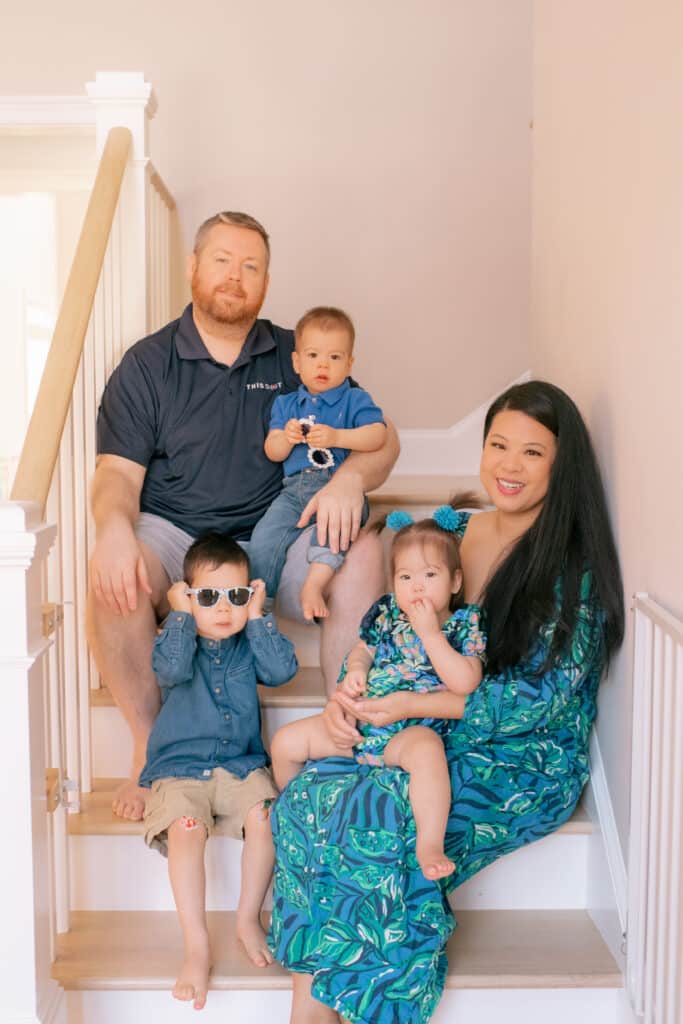
Tracy brings that same intentionality to her life at home, where she and her husband, Elliott Fouts, are raising three young children: William, 3, and twins Angelina and Marcus, who are 1.5. Despite the busy pace, Tracy is committed to being present in every role she plays.
“I have three full-time nannies and two part-time nannies, as well as girls around the neighborhood who are mama’s helpers to manage the chaos! With the help, we are able to do more and enjoy more time with our kids,” she said. “I try to be fully present, whether I’m in a meeting or building block towers in the living room. It’s never perfect, but we focus on what matters most in the moment.”
Tracy credits her support system for making it all possible. “I have an incredible partner and a strong support system between our nannies, friends and local community,” she said. “We have a local moms group for Asian moms called Georgia Asian Moms, and there are so many moms just in our neighborhood. It’s really great.”
Peachtree Corners has become a meaningful home base for the family. “We absolutely love it here,” she said. “There’s amazing programming for kids at The Forum every Tuesday in the spring and summer. It’s such a gem for young families.”
Weekends often include time outside and community adventures. “Sometimes the best hack is just piling everyone in the wagon and heading out for fresh air!” she said.
Tracy leans on a strong partner, a tight-knit group of friends and a local moms network. “It really takes a village,” she shared. “And I feel lucky to have one.”
Melissa Nicholson
Melissa Nicholson knows what it means to lead with heart and precision. As division vice president of program management & international solutions at Aya Healthcare, she helps internationally educated healthcare professionals enter the U.S. workforce.
“What I enjoy most is the opportunity to support these professionals in achieving their American dream,” she said. “While also contributing to improved patient outcomes across the country.”
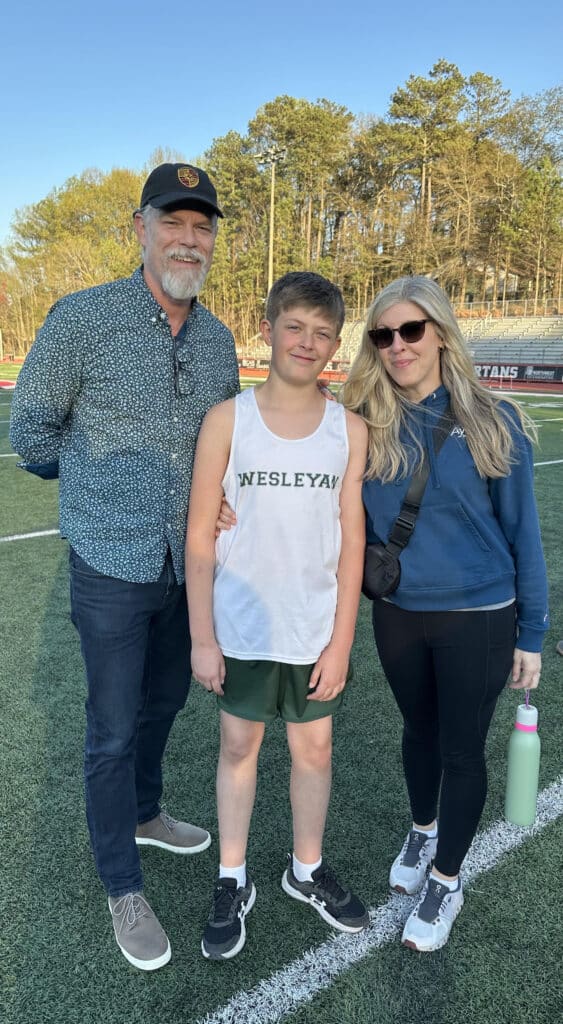
Melissa and her husband Greg recently celebrated 15 years of marriage. Their 12-year-old son, Luke, and a cat named Charlie bring a fun, loving dynamic of their own into the family. After relocating from East Atlanta a decade ago, they quickly embraced the Peachtree Corners community.
“It’s the people who make this community so special,” she said. “We’re truly grateful to count our neighbors as friends.”
Balancing an executive role with family life takes clarity and commitment. “I have to be very intentional with my time,” Melissa shared. She sets boundaries at work and makes sure her team knows when she’s off the clock for important family moments.
Wellness is a key part of her rhythm. “I recently started working out at Orangetheory Fitness,” she said. “I’ve noticed a significant boost in both energy and focus.” Sundays are for church and reflection.
When she travels for work, Greg holds it down at home. “We rely on each other to keep life running smoothly,” she said. “I’m grateful every day for that kind of partnership.”
On weekends, Melissa prioritizes quality time. Whether that’s a hike, pool day or baking something from scratch. “We’ve learned that if we don’t prioritize those moments, the weekends can quickly get taken over.”
Diva Hicks
For Diva Hicks, work isn’t just a job, it’s personal. As creative senior manager at CURE Childhood Cancer, her mission runs deep.
“At 12 years old, my sister was diagnosed with cancer,” she said. “CURE, in its early days, was a resource for my family.”

Her sister survived and now thrives. That experience shaped Diva’s career and continues to inspire her today. “This is my opportunity to give back to CURE for what it did for my family,” she said. “It’s rare to find a place where your purpose and passions collide.”
CURE also welcomes her whole family into the fold. “I get to bring my kids to events all the time,” she said. “They love feeling like they are a part of my work.”
Diva lives in Peachtree Corners with her husband John, their children Adair, 8, and Tripp, 6, and two golden doodles. “There is a sense of community here that I think is special,” she said.
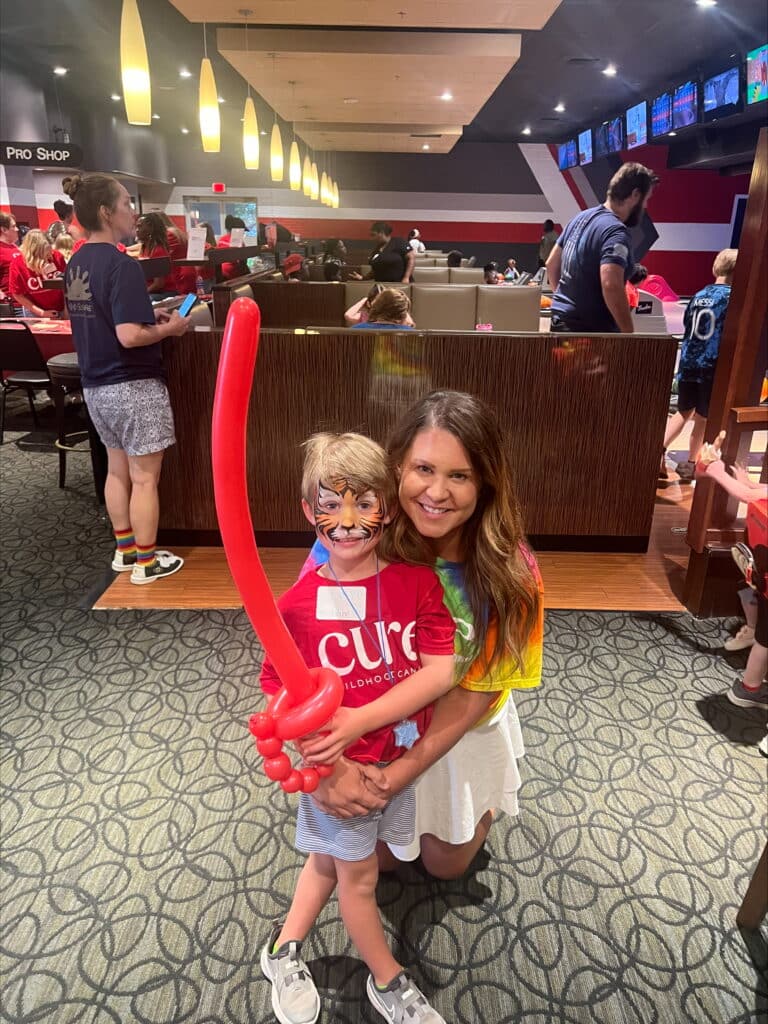
Balance is a daily effort. “John and I have tackled who helps with homework and on what days,” she said. “I would not be able to be the mom that I am without my village.”
She leads school committees and never misses events. “Is it easy? No,” she said. “But I honestly say, it’s not easy for any parent.”
Diva’s motivation is clear. “I want Adair to look at me and see that she can be a mom and have a career too.”
The family stays grounded with tennis weekends and careful planning. “We live by our calendar,” she said. “The more prepared I am, the easier life is.”
Kate Martin
Kate Martin knows how to bring structure to busy systems. As senior director of financial planning and analysis at Alloy Roofing, she finds energy in collaboration and clear strategy.
“In this role, I work closely with various teams across the business,” she said. “It supports the company’s strategy and performance.”
Kate and her husband, Nathan, are raising two children, 14-year-old Elliot and 10-year-old Evan, in Peachtree Corners. After ten years in the area, she credits the people for making it feel like home. “Life wouldn’t be the same without the relationships we’ve built here,” she said.
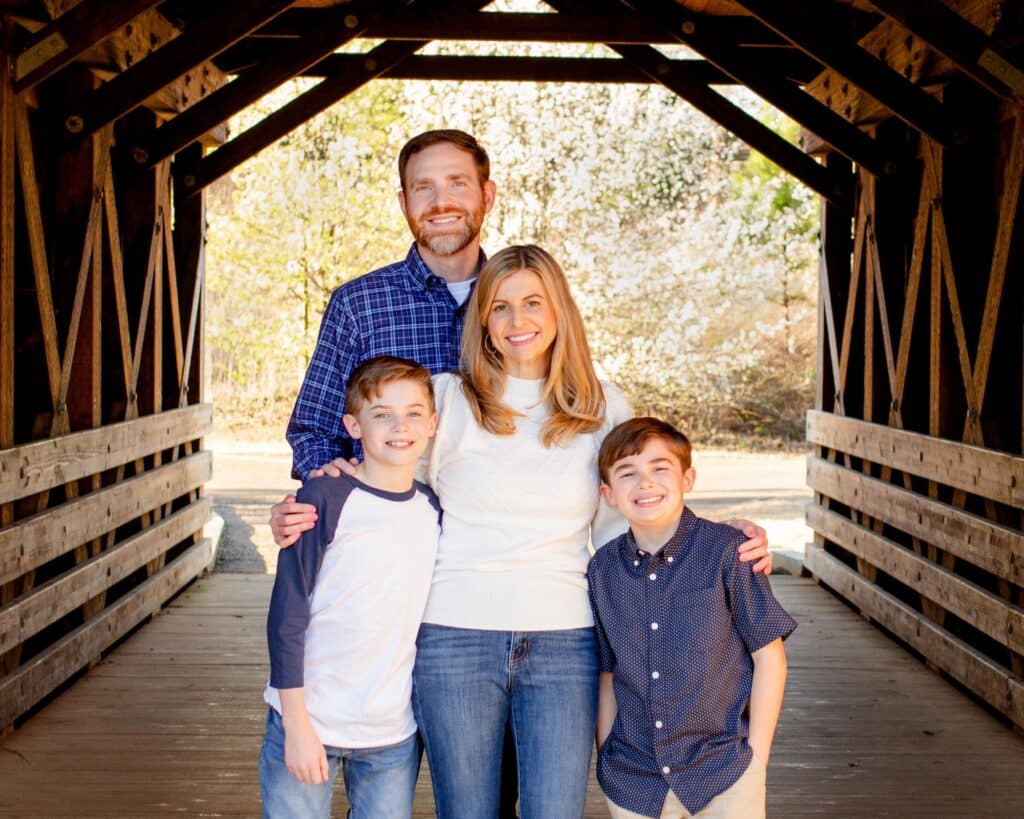
Balance starts with planning. “We keep a central Google calendar synced with all the family commitments that we review daily,” she said. “On Sundays we write on the kitchen boards.” Their chalkboard becomes the weekly roadmap, from meals to responsibilities.
“Seeing things laid out visually keeps me from overcommitting,” she added.
The family stays grounded by recognizing progress. “What keeps me motivated is celebrating both the big and small wins together,” she shared. “Sometimes, making it through the week is a victory in itself.”
Kate relies on a strong network. “We are very fortunate to have my parents nearby,” she said. “I also have an amazing network of women here in Peachtree Corners that I rely on.”
Her favorite hack? “An app Nathan created to help manage our calendars,” she said. “He created a solution to integrate these webcal subscriptions into a central subscription hub.” It’s called Skedj, and they’re piloting it now. “If you know this struggle and want to help us pilot the app, check out skedj.co!”
Linda Luna
As vice president at RSUI, Linda Luna manages risk while empowering people. She leads a team of underwriters who handle professional liability and cyber insurance. “I really enjoy my job because of its dynamic nature and the opportunity to help people in meaningful ways,” she said.
Whether she’s mentoring her team or protecting clients’ businesses, Linda finds value in impact. “It’s rewarding to know that my work has a positive impact on both my colleagues and our clients.”

She and her husband, Ruben, are raising their two children, Dawson, 10, and Ava, 6, in Peachtree Corners. Her parents, though not under the same roof, are a constant part of daily life. “They help keep things running smoothly on the home front,” she said.
After nine years in the community, Linda has grown to love its blend of charm and convenience. “There is always something to do,” she said. “Whether it’s grabbing a bite at Ted’s or spending time with friends at Town Center.”
Balance comes from structure. “By establishing a solid schedule and sticking to it, I can ensure that my work commitments are met,” she said. “Being fully present allows me to strengthen my connection with my loved ones.”
When things get busy, she takes a practical approach. “Breaking it down into smaller, manageable tasks makes it much more approachable,” she said. “I remind myself to keep the bigger picture in mind and not sweat the small stuff.”
Linda’s support system is strong. “It truly takes a village, and I’m so grateful for mine,” she said. The family’s favorite tradition? A beach trip to 30A every May. “It’s our way of unwinding, reconnecting and making lasting memories together.”
Allison Blasetti
Allison Blasetti holds a national leadership role at Transamerica in the employee benefits division — a position that constantly challenges and motivates her. “What I enjoy most is the opportunity to use my talents to help my team,” she said. “I’m always growing and learning.”
She and her husband, John, are raising daughters Annie Mae, 8, and Olive, 6, in Peachtree Corners, where they’ve built strong ties in the community. “The amenities in our city provide many opportunities to run into friends around town or plan meet-ups,” she said.
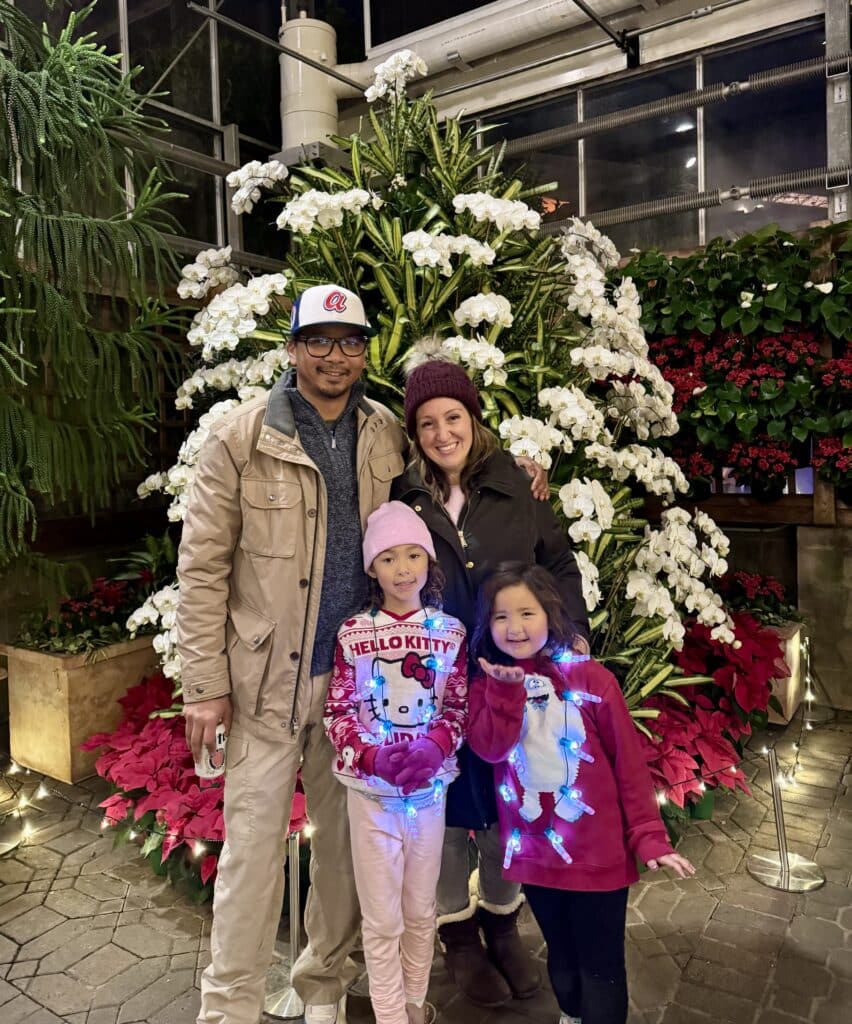
Allison works from home and prioritizes clear boundaries. “I turn off my app notifications because it quickly pulls me back in to work,” she said. “I also have a dedicated workspace in my house where I can leave at the end of the workday.”
She’s developed the habit of resetting her mindset, as well. “I quickly recognize [when] I’m mentally ‘at work’ and actively redirect my thoughts back to being in the present moment.”
Allison’s mornings begin at Burn Bootcamp, where she finds motivation and connection. “Spending an hour with my Burn community helps me get grounded for the day,” she said.
To stay organized, she and her husband use a shared family calendar. Her mom steps in often, especially when work travel ramps up. “I really don’t know what we would do without her.”
On weekends, Allison coaches Olive’s soccer team with the Peachtree Corners Football Club. “It brings me so much joy to be outside, see my soccer friends and watch my girls have fun,” she said. “Coaching makes it even better because I get to support the community that means a lot to me.”
Samantha Morgan
Samantha Morgan is a commander in the U.S. Public Health Service, currently assigned to the Centers for Disease Control and Prevention. Over her career, she’s responded to major public health threats, including Ebola, Zika and COVID-19. Today, her work centers on injury prevention, with a focus on issues like suicide, drowning and traumatic brain injury.
“What I enjoy most is being part of CDC’s mission to save lives and protect people,” she said. “I’m proud to contribute to work that makes a tangible difference in communities across the country.”
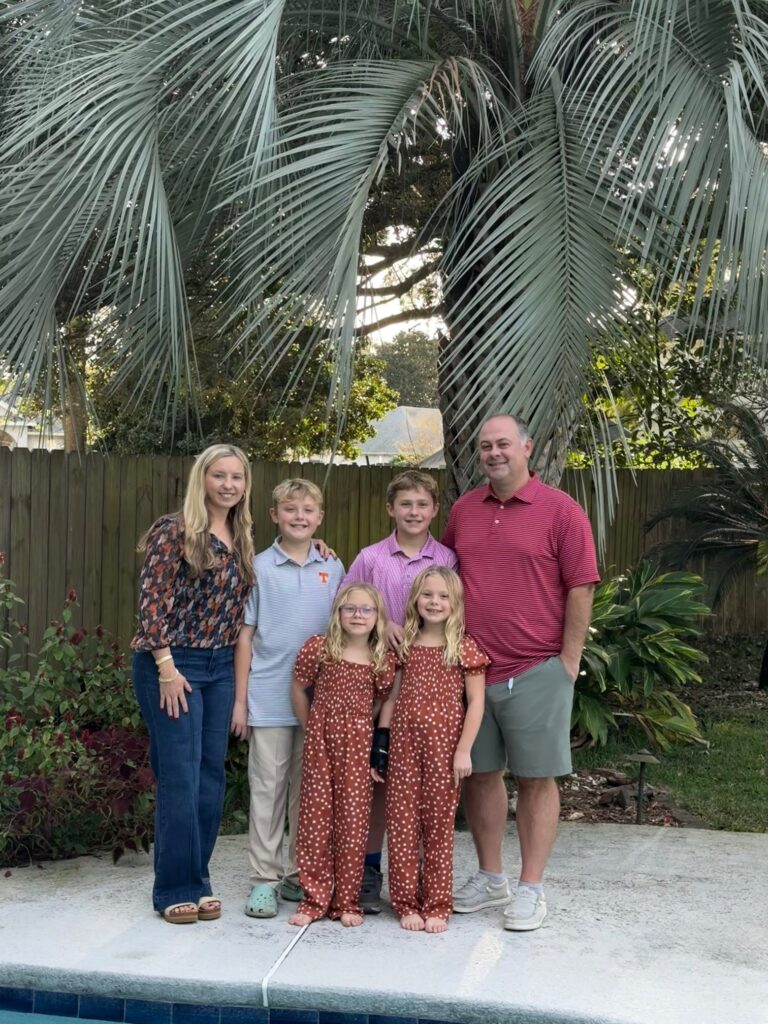
At home in Peachtree Corners, Samantha and her husband, Brian, are raising two sets of twins. Luke and Elliot are 12-years-old and love baseball, golf, basketball and band. Charlotte and Noelle are 8-years-old and enjoy piano, tumbling and tennis. “Life with four kids is wonderfully busy,” she said. “I often joke that I’m an unpaid Uber driver!”
After more than a decade in the neighborhood, Samantha credits their support system for helping them manage the day-to-day. “Our neighbors and friends — our village — have supported us through the hardest moments and celebrated life’s greatest joys with us,” she said.
Structure is key to keeping things on track. “We live and breathe by our family calendar,” she said. “Shared schedules, group texts and carpooling help us keep things running.”
Her children remain Samantha’s biggest motivators. “They know, ‘mom’s going to work to help make the world a safer place,’” she said.
The family also leans on routines and simple joys. “Checklists are my go-to mom hack,” she shared. One of their favorite traditions is make-your-own-pizza night. “It’s messy, silly and something we all genuinely look forward to.”
The seven women featured here offer a glimpse into the lives of working moms in Peachtree Corners. Each one balances career, family and community with care and intention. They are just a few of the many women — both working and stay-at-home — who nurture, organize and uplift the people around them every day.
Whether leading teams or guiding their children, mothers across this community show up with strength, love and quiet determination.
You’ll find this story in the May/June issue of Peachtree Corners Magazine, available in print and digital edition.
Related
Read the Digital Edition
Subscribe
Keep Up With Peachtree Corners News
Join our mailing list to receive the latest news and updates from our team.
You have Successfully Subscribed!

Official City Merchandise Line Debuts This Saturday at Town Green

Peachtree Corners Hosts Discussion About the Future of Local Policing

Executive Function: A Tribute to Working Moms

Peachtree Corners Grows Business Opportunities Through Economic Development

D1 Training Brings New Fitness Concept to Peachtree Corners

MomoCon 2025 to bring 60,000 Fans to Atlanta for a Weekend of Cosplay, Animation, Gaming and Music

Simpson Elementary Marks Exceptional Children’s Week

City of Peachtree Corners Awarded Certificate of Achievement From GFOA for Seventh Straight Year

From Boardrooms to the Himalayas: Vandana’s Journey to Purpose and Growing with Intention [Podcast]

MomoCon 2025 to bring 60,000 Fans to Atlanta for a Weekend of Cosplay, Animation, Gaming and Music

Local Special Olympics Pickleball Team Honored with State House Resolution

Atlanta’s Dog Howl-O-Ween Festival Moving to Peachtree Corners for 2025

D1 Training Brings New Fitness Concept to Peachtree Corners

Peachtree Corners Hosts Discussion About the Future of Local Policing

City of Peachtree Corners Awarded Certificate of Achievement From GFOA for Seventh Straight Year

Simpson Elementary Marks Exceptional Children’s Week

Light up the Corners [Video]

Capitalist Sage: Business Leadership in Your Community [Podcast]

Cliff Bramble: A Culinary Adventure through Italy

Top 10 Brunch Places in Gwinnett County

A Hunger for Hospitality

THE CORNERS EPISODE 3 – BLAXICAN PART 1

Top 10 Indoor Things To Do This Winter

The ED Hour: What it takes to Remove Barriers from Education

Peachtree Corners Life
Topics and Categories
Trending
-
Around Atlanta4 days ago
MomoCon 2025 to bring 60,000 Fans to Atlanta for a Weekend of Cosplay, Animation, Gaming and Music
-
Sports5 days ago
Local Special Olympics Pickleball Team Honored with State House Resolution
-
Business9 hours ago
From Boardrooms to the Himalayas: Vandana’s Journey to Purpose and Growing with Intention [Podcast]






